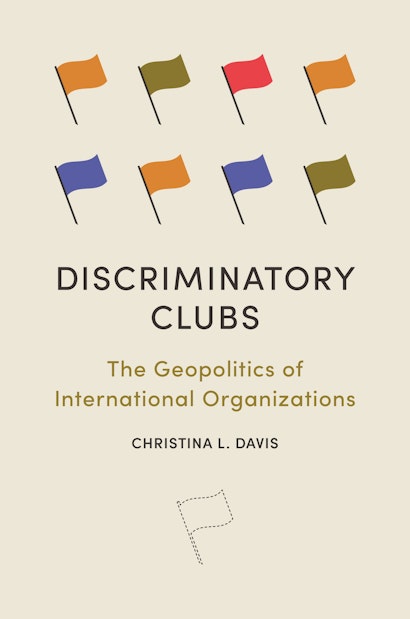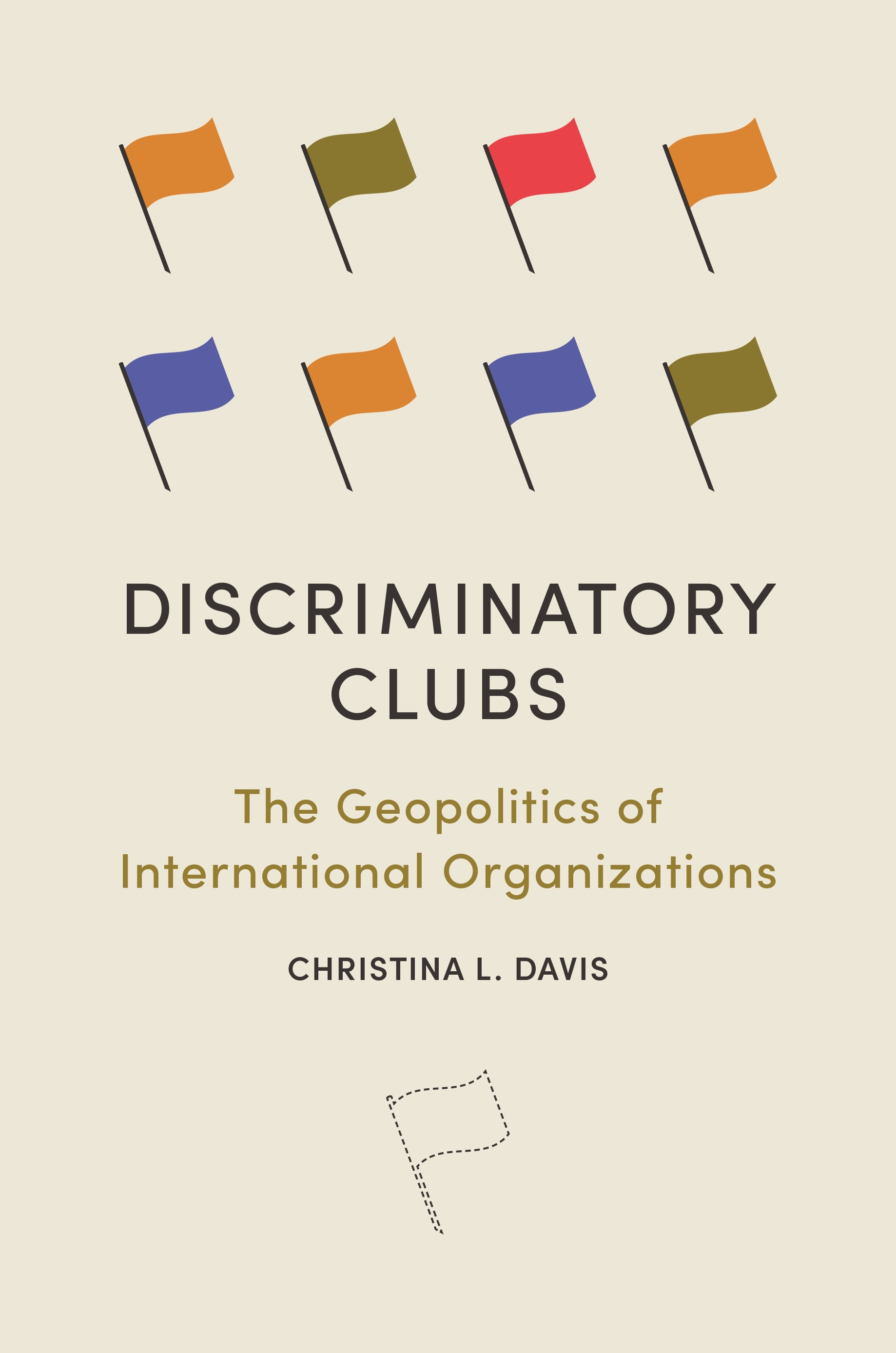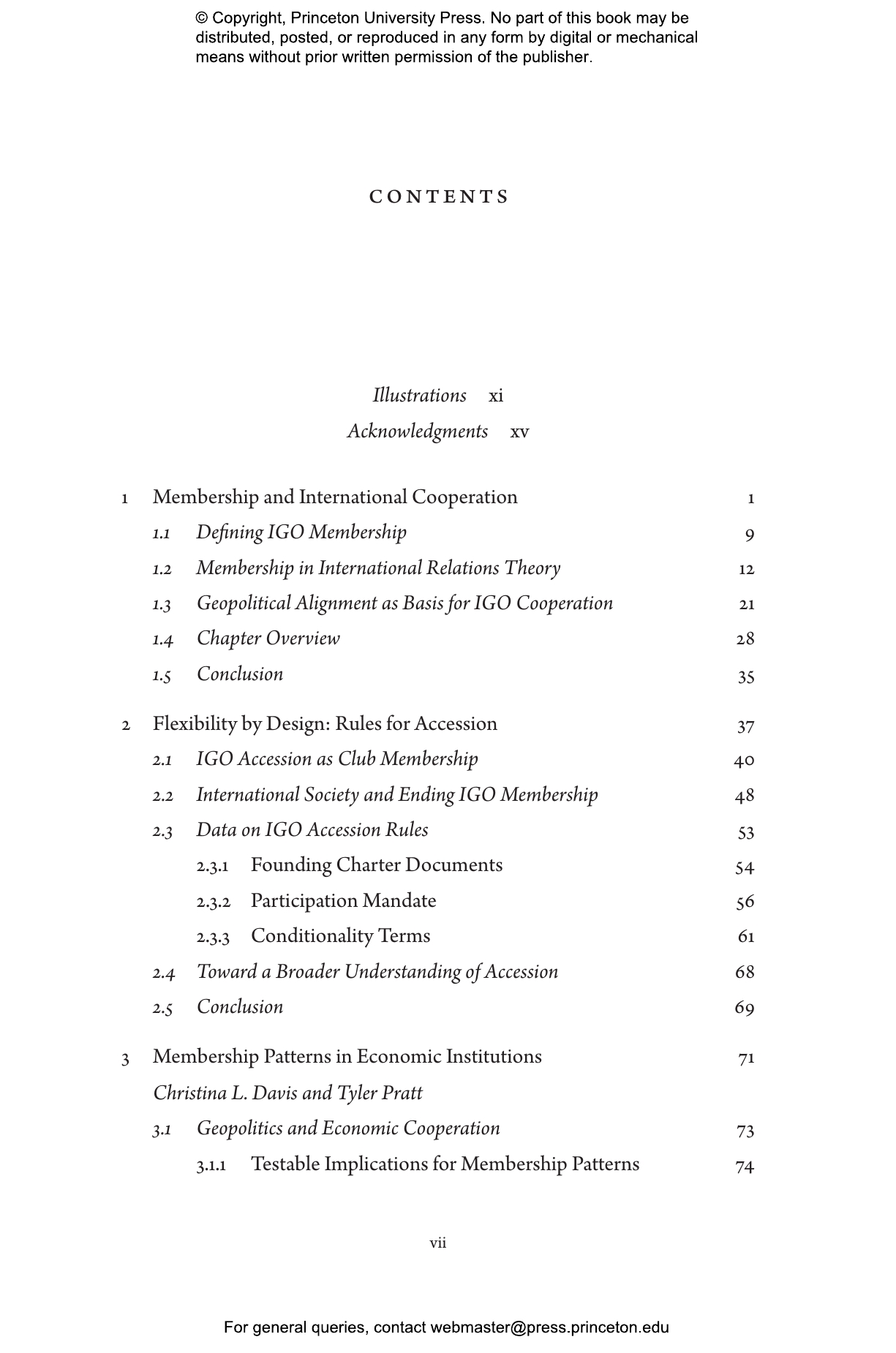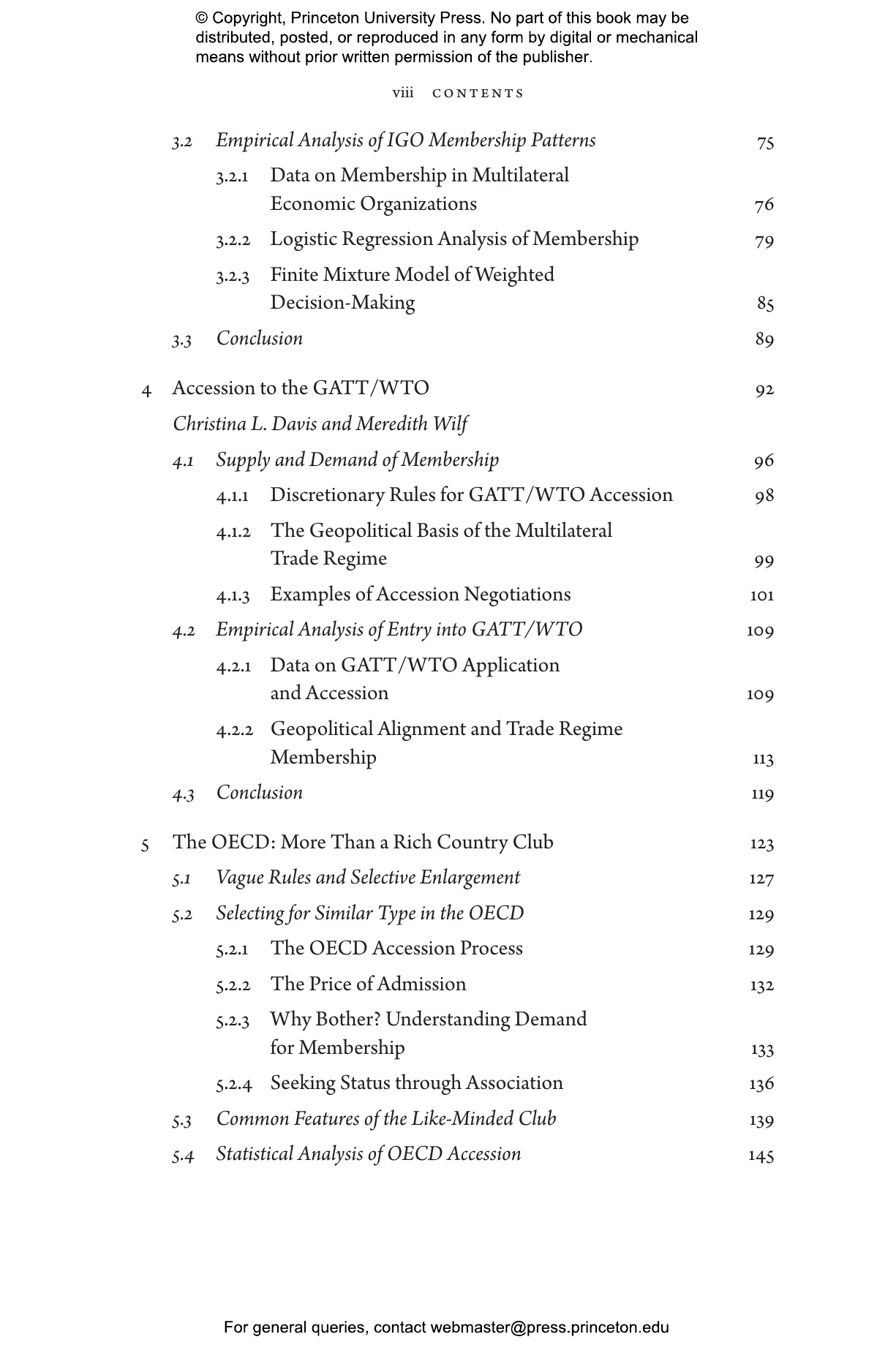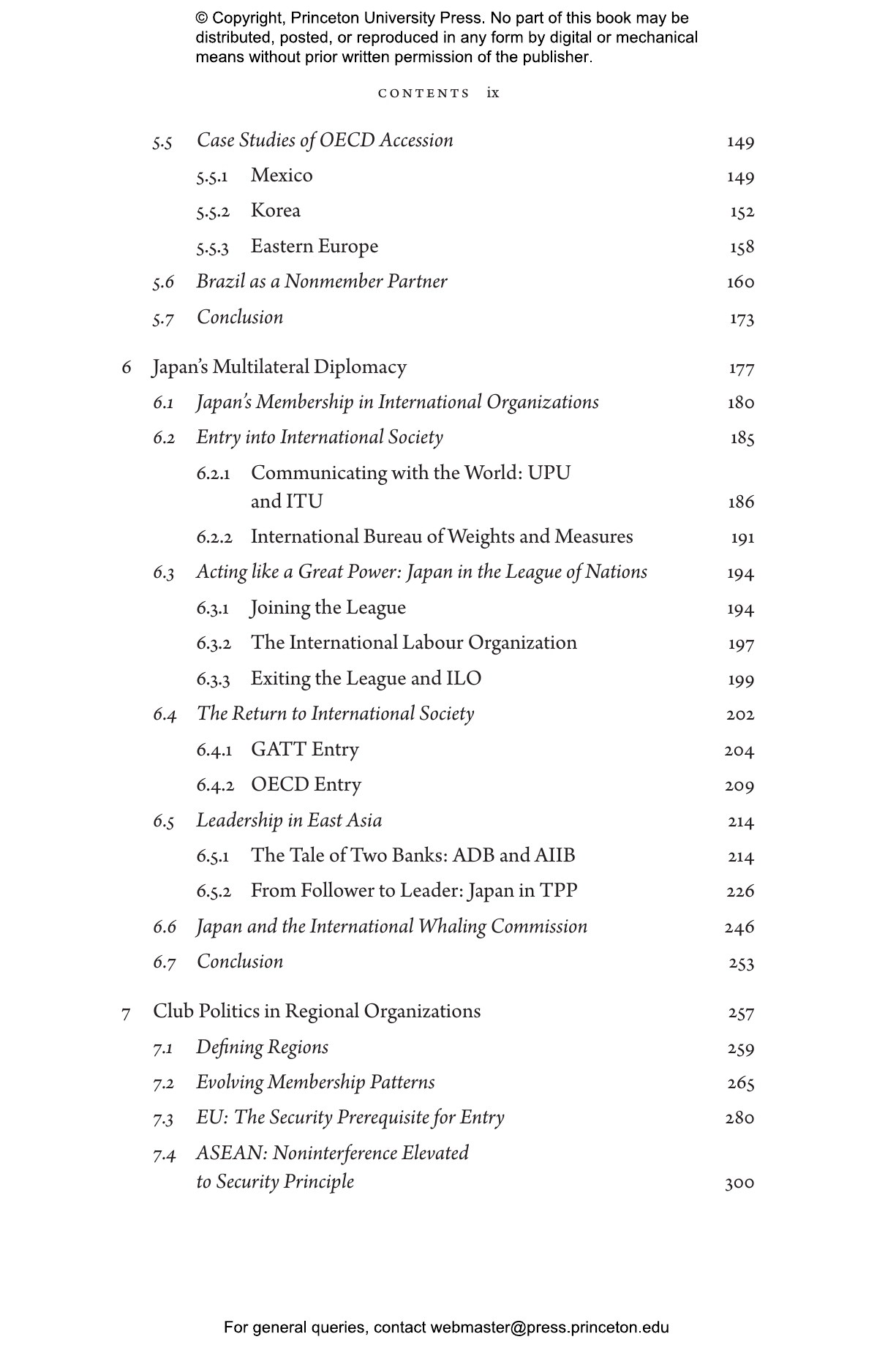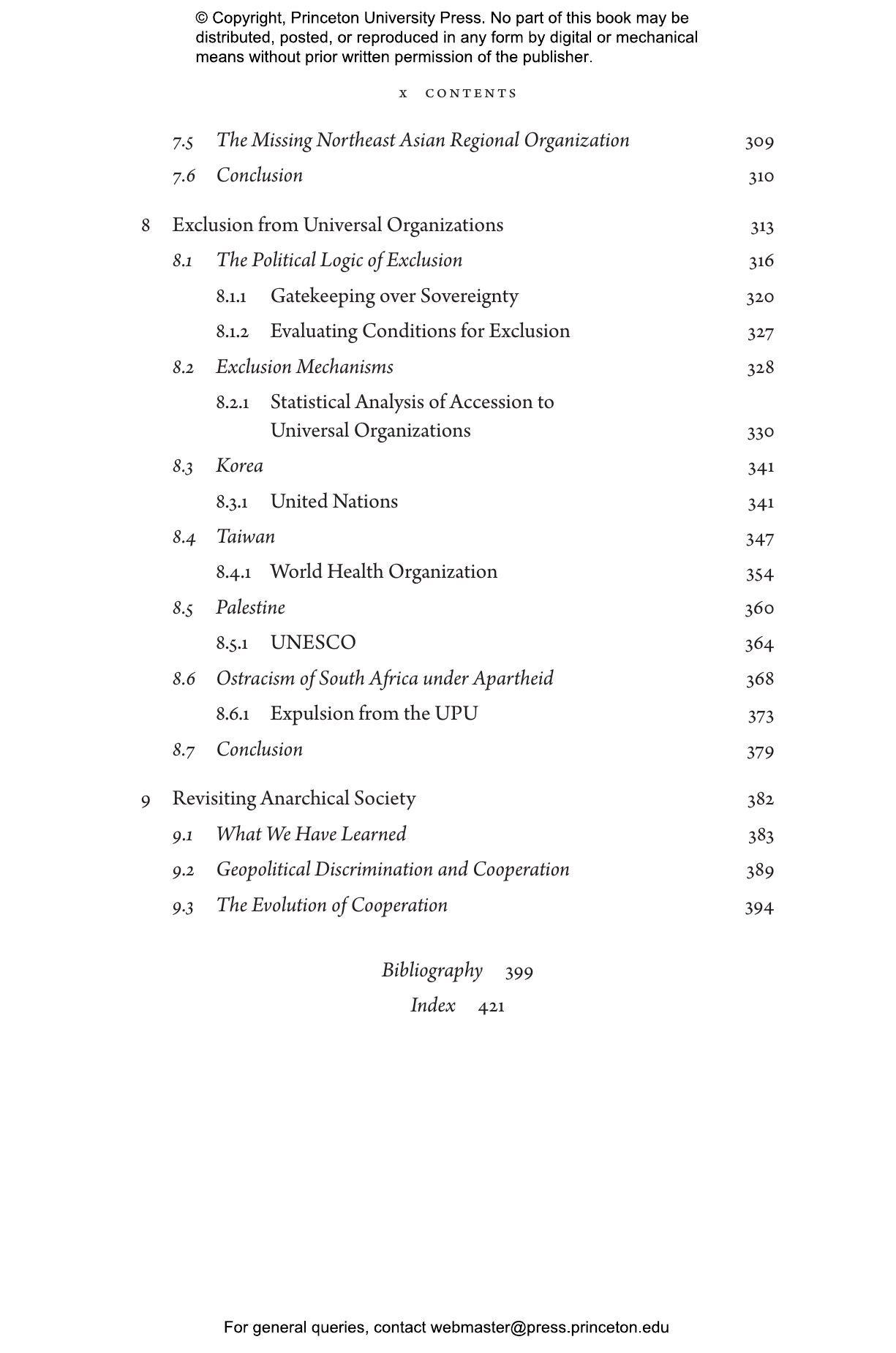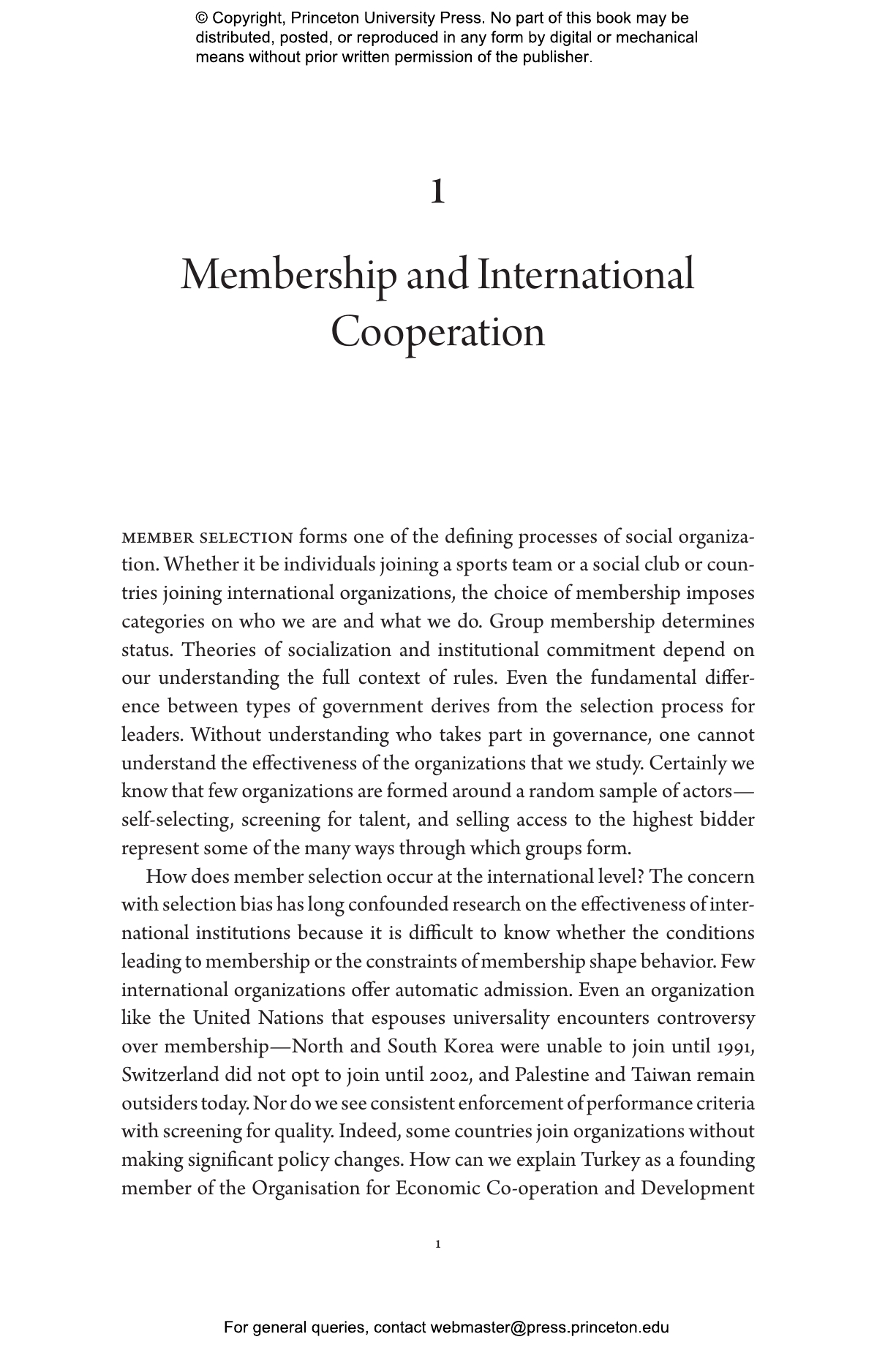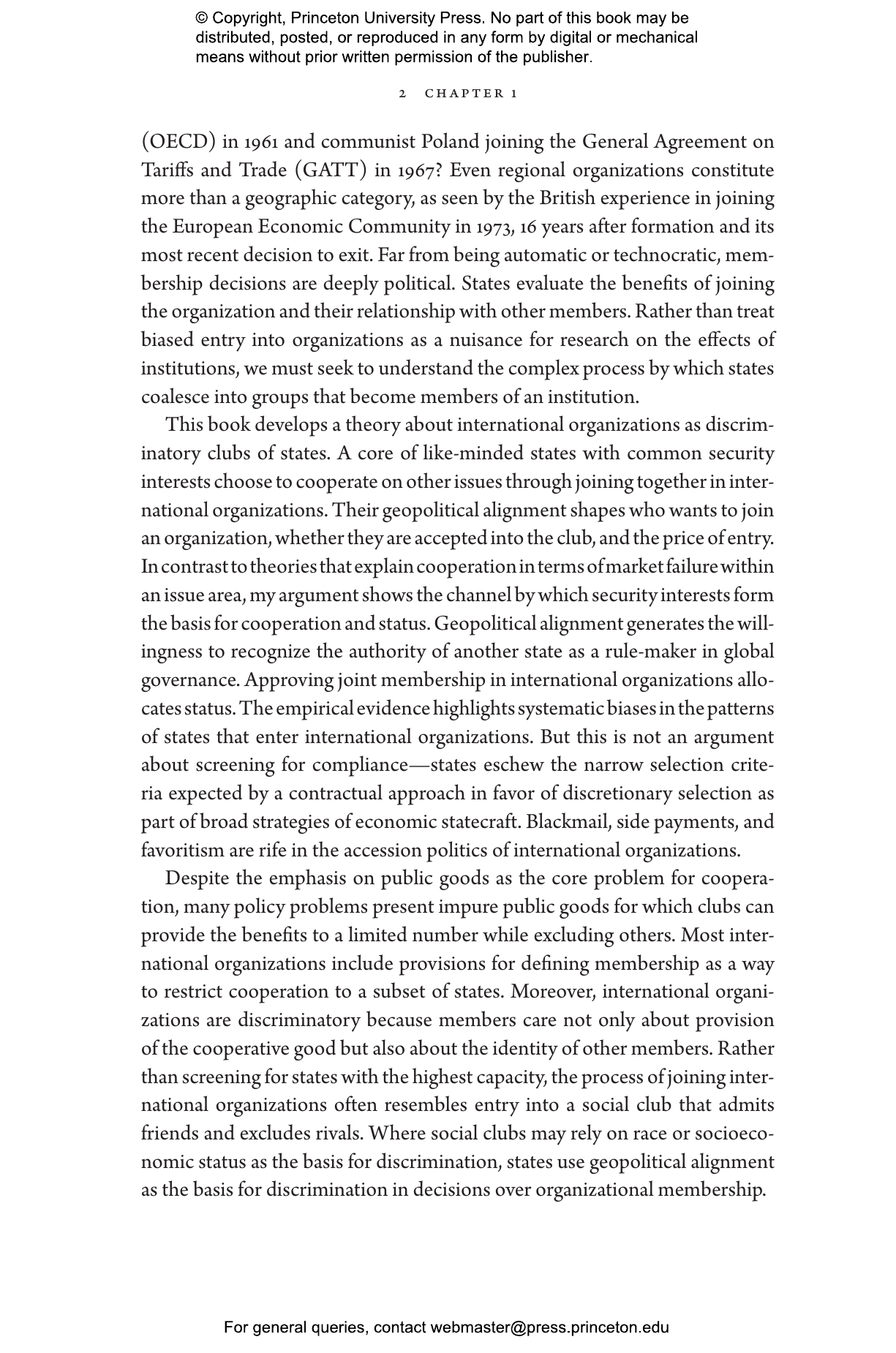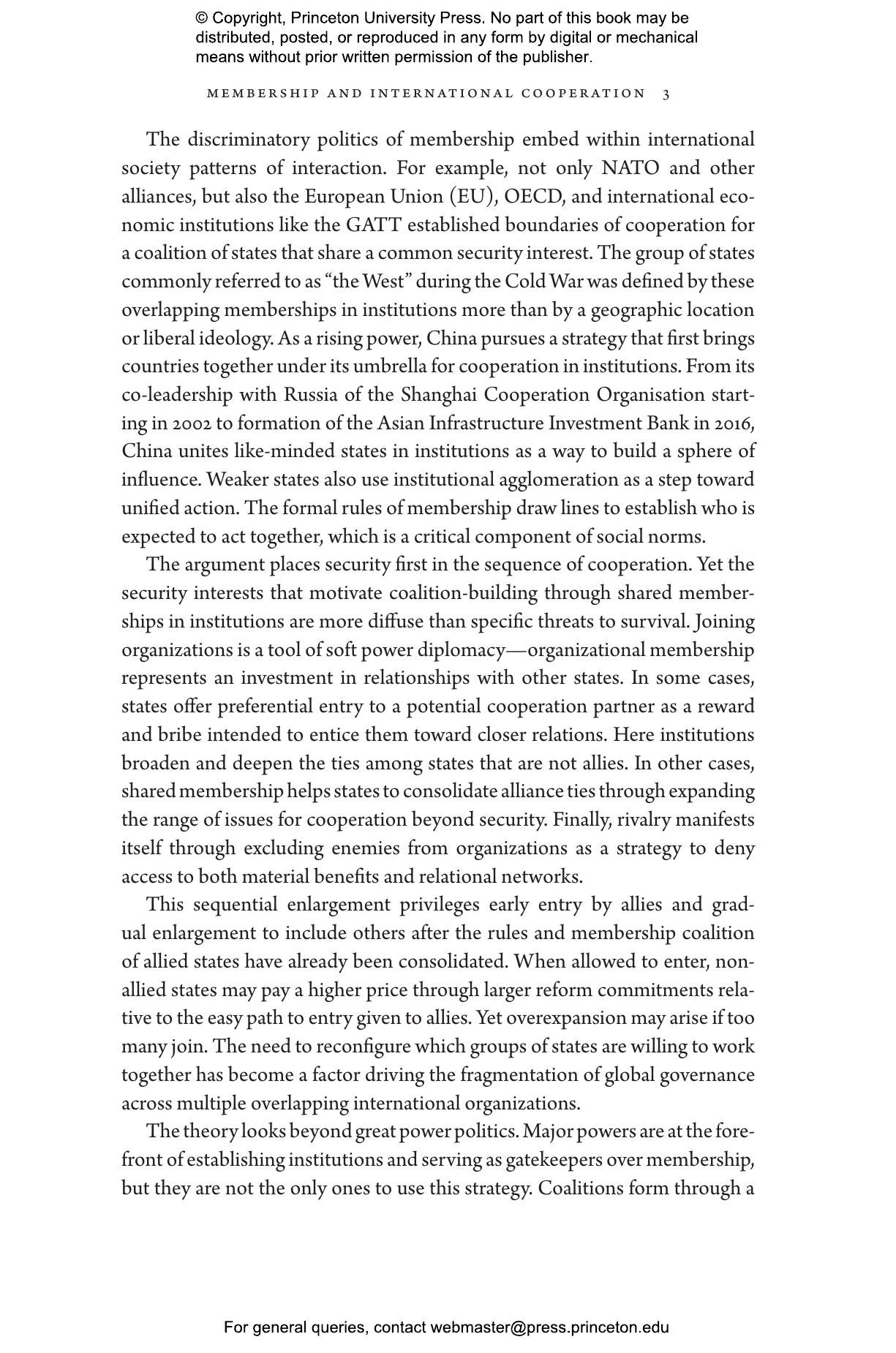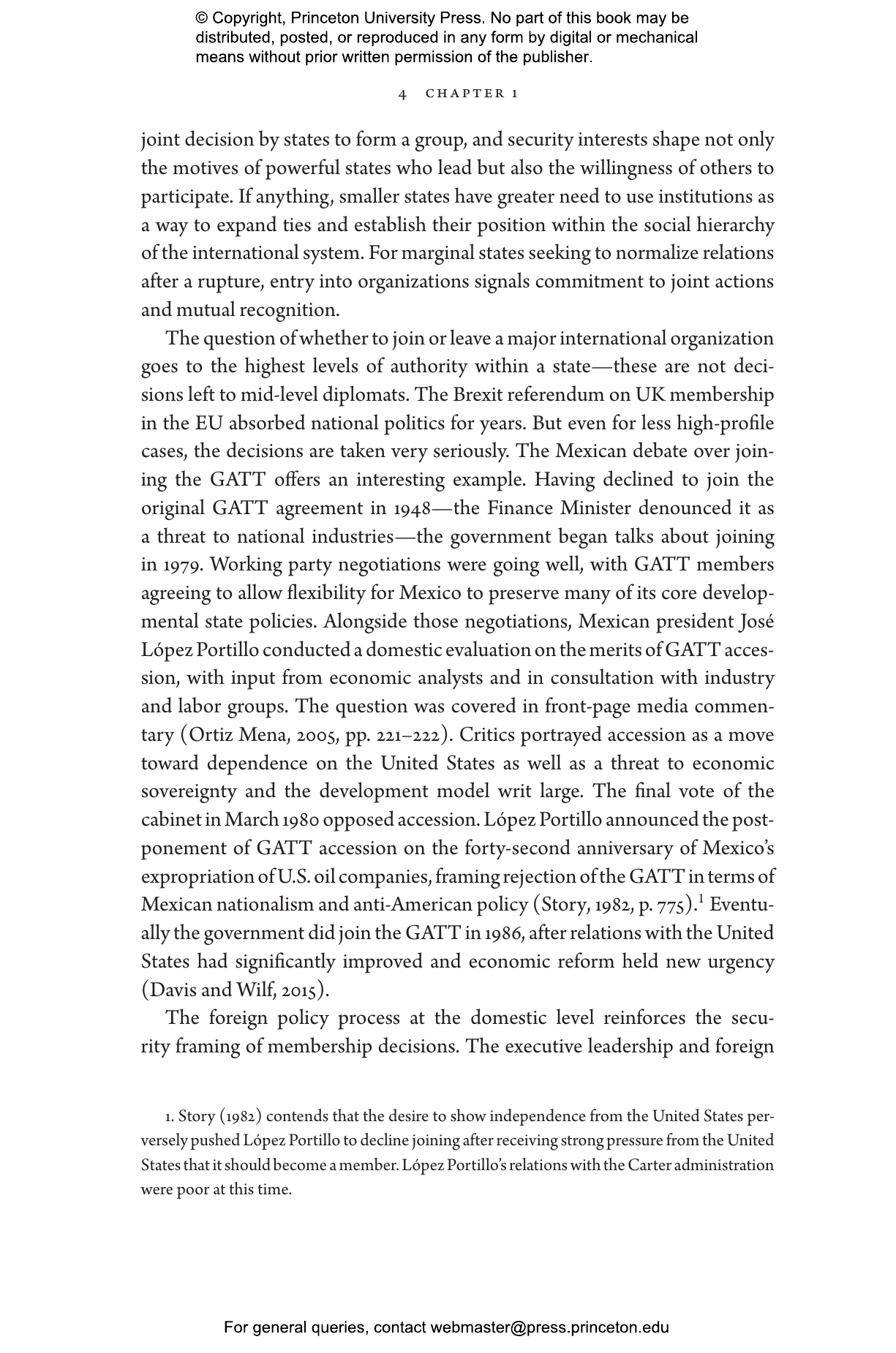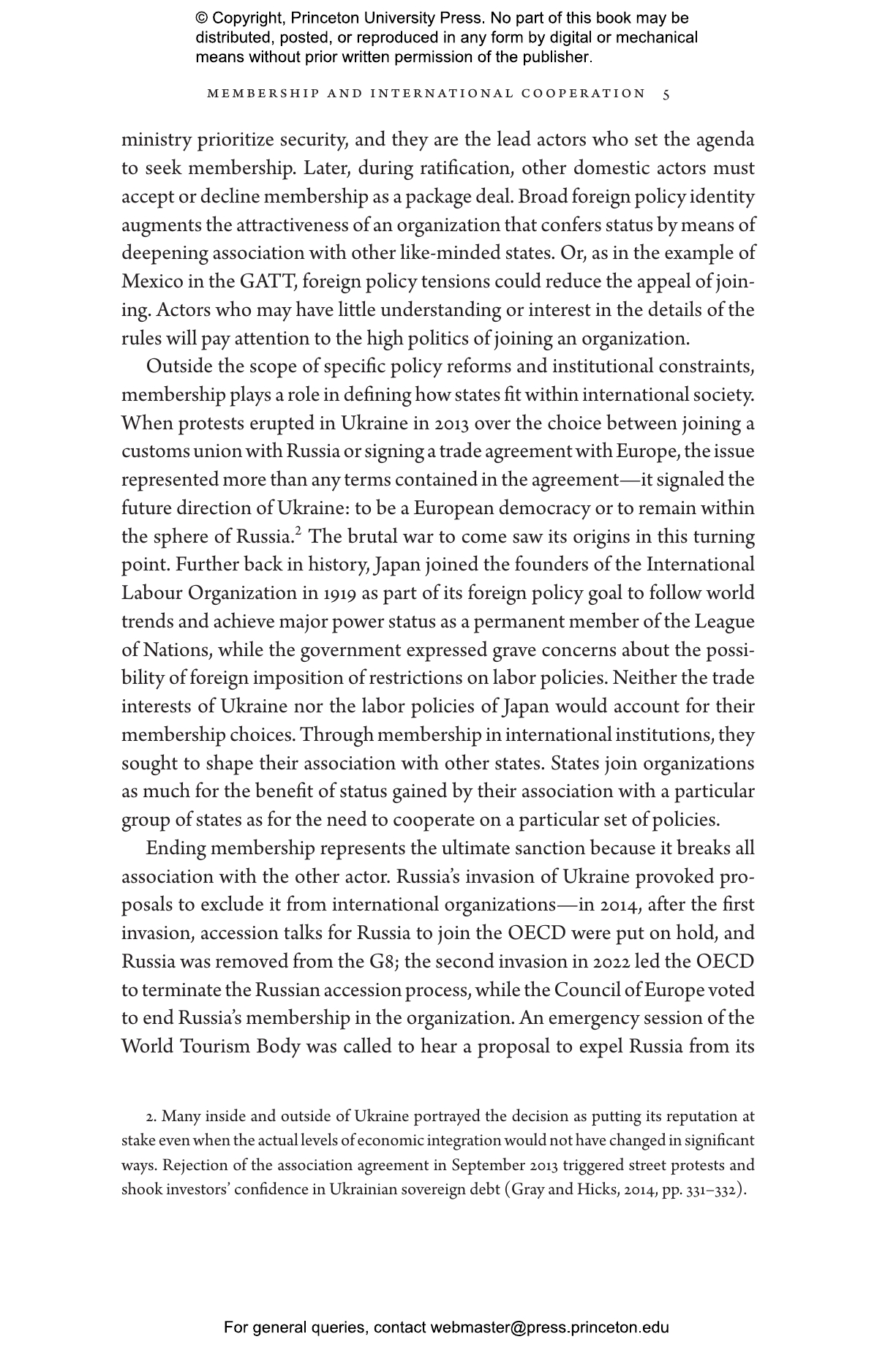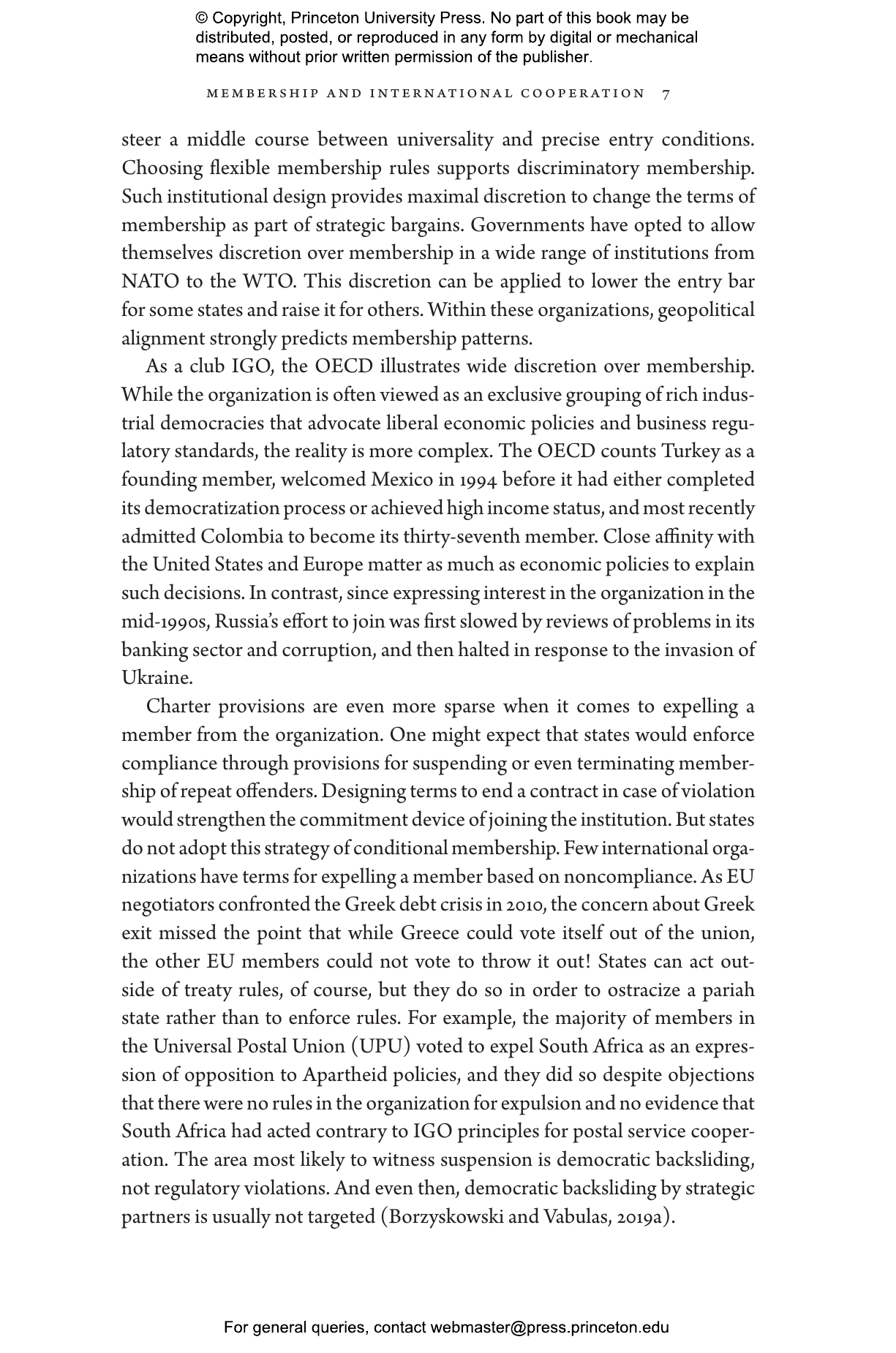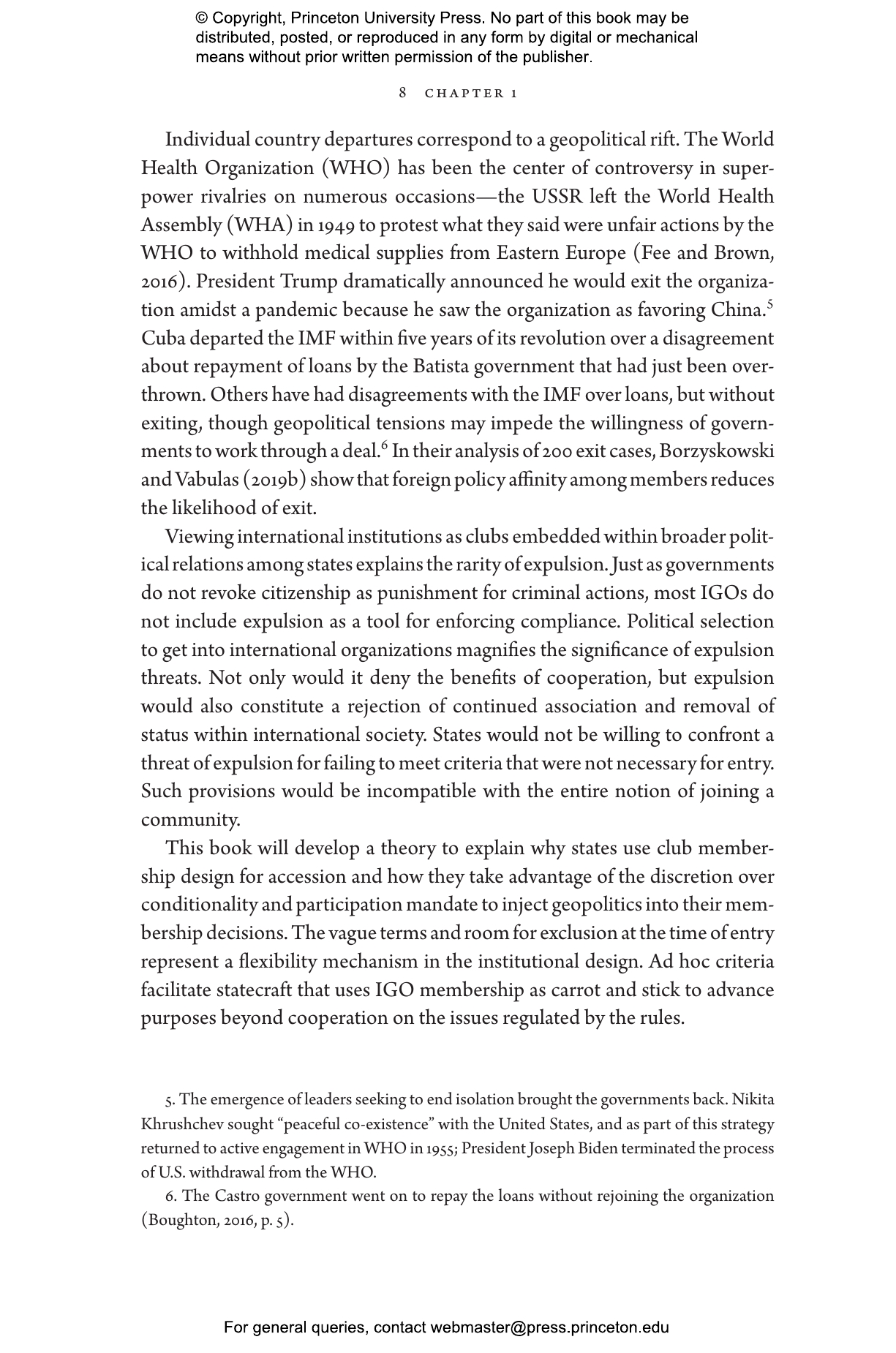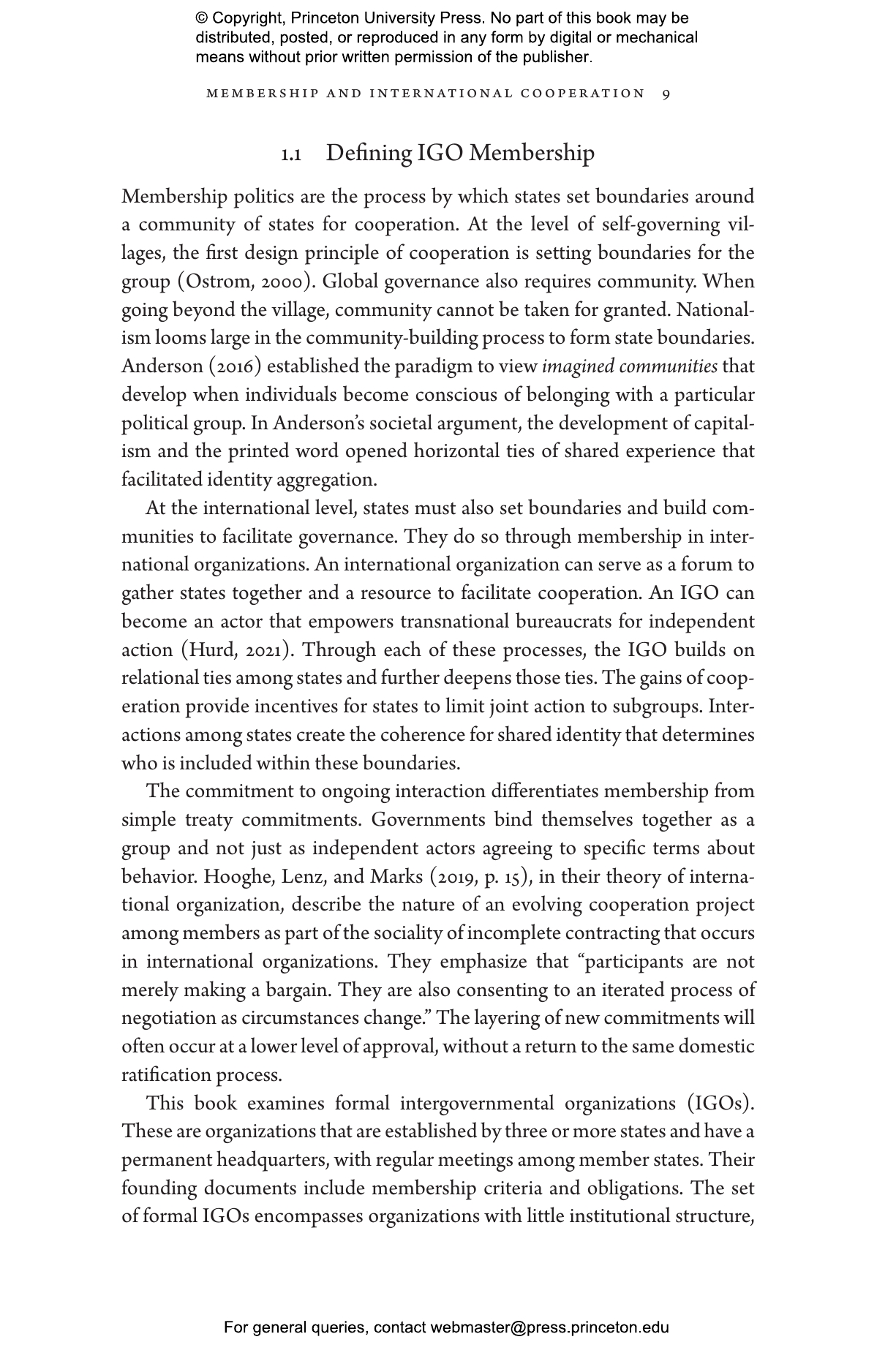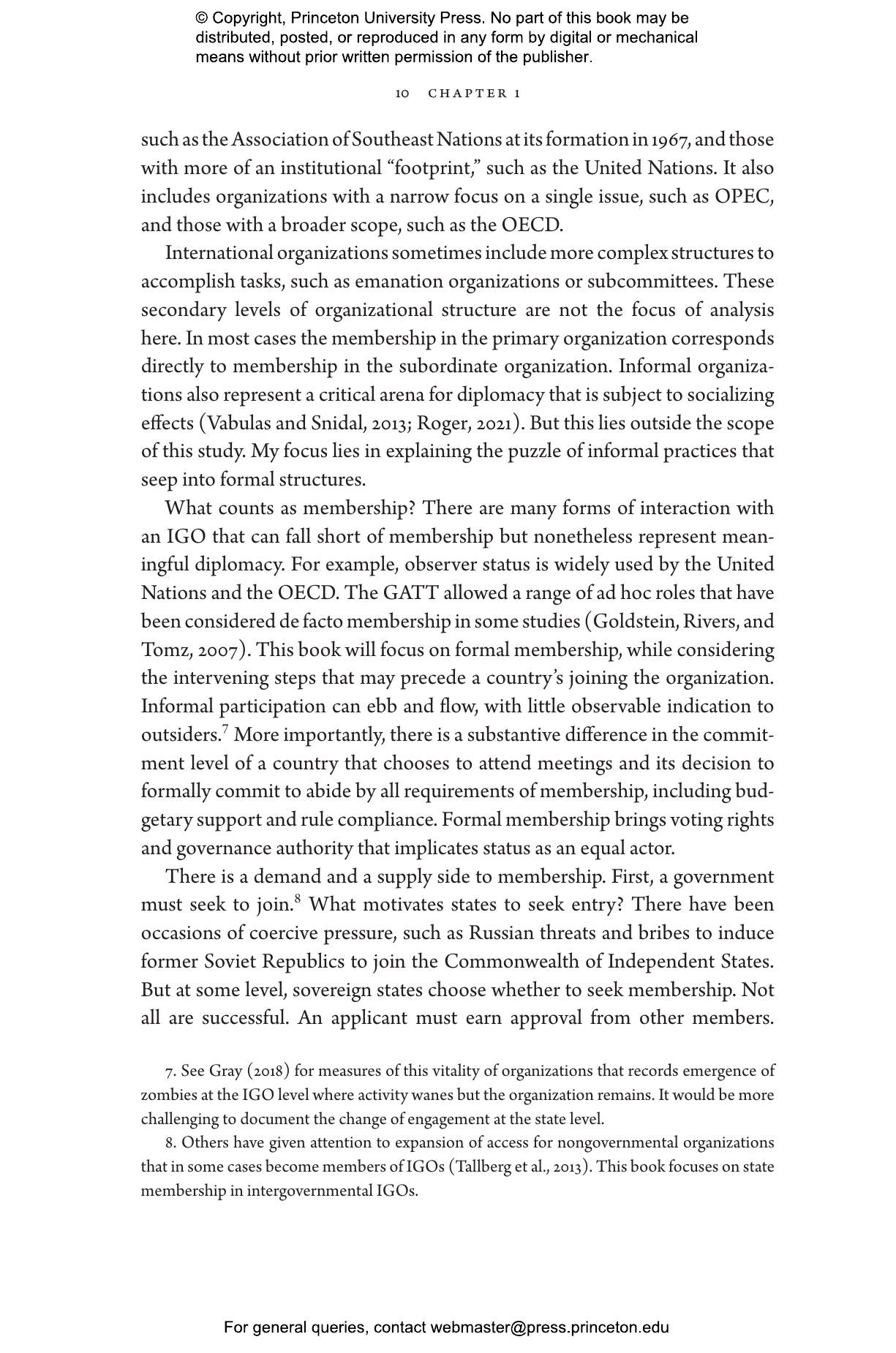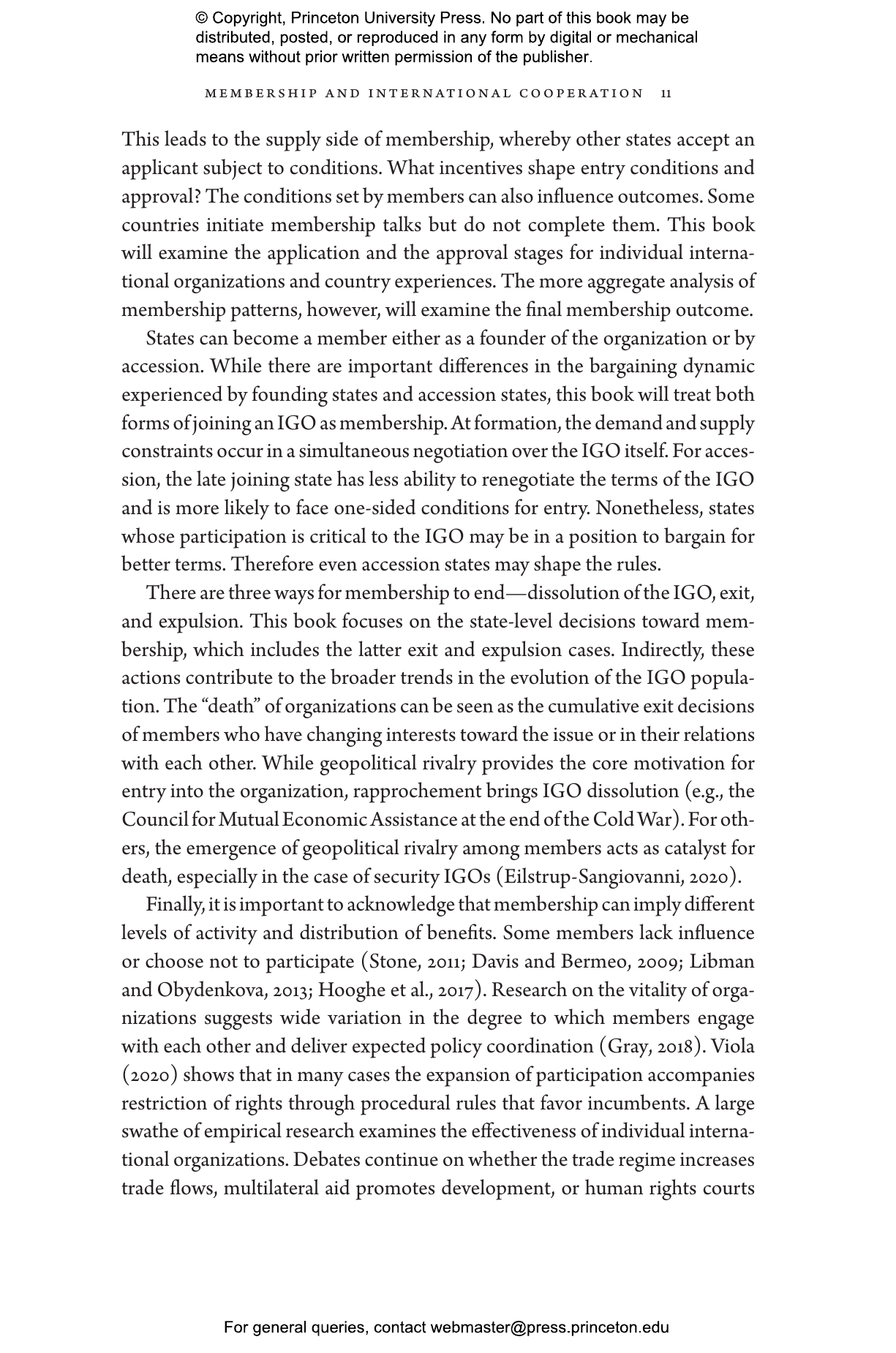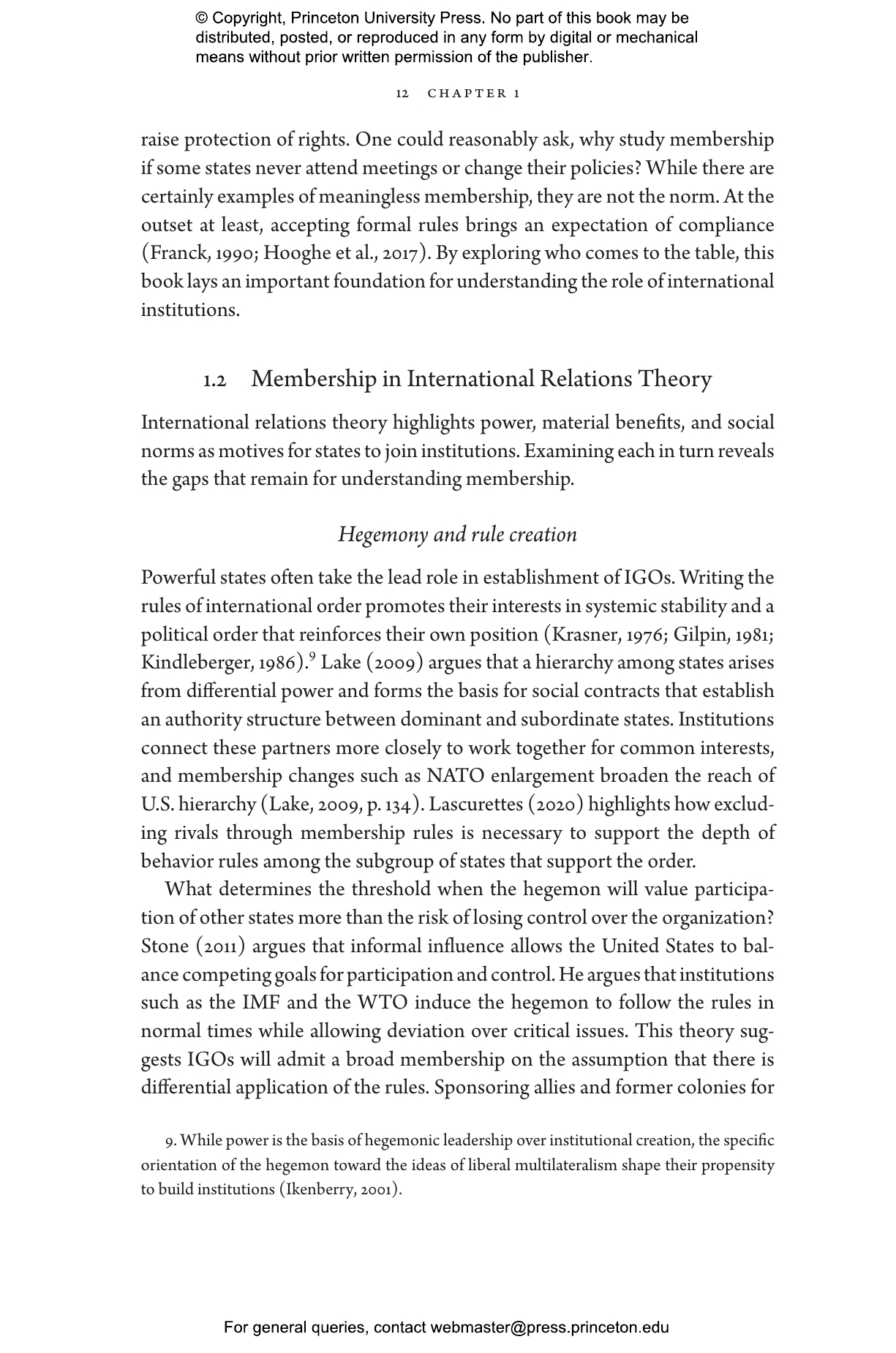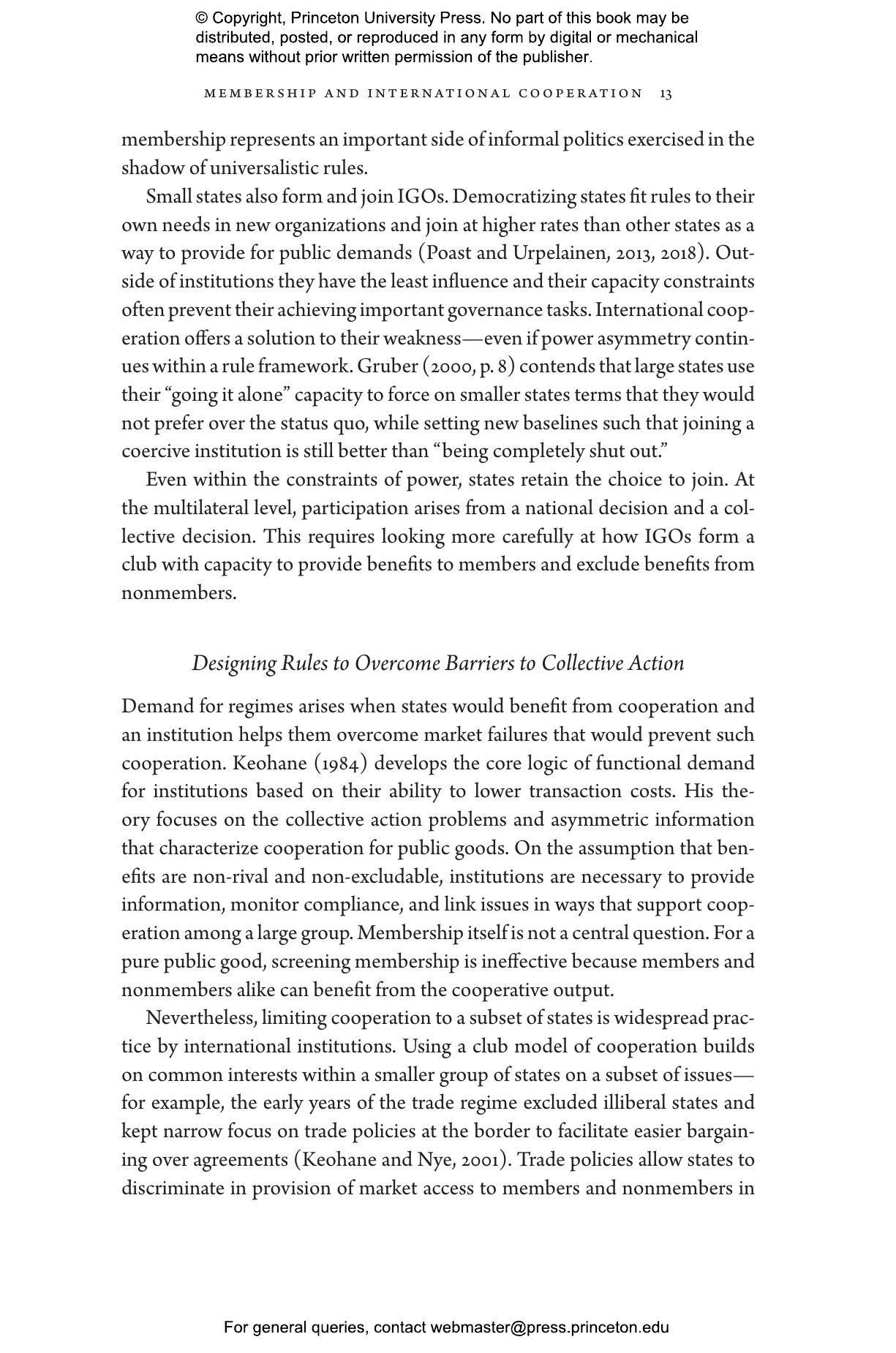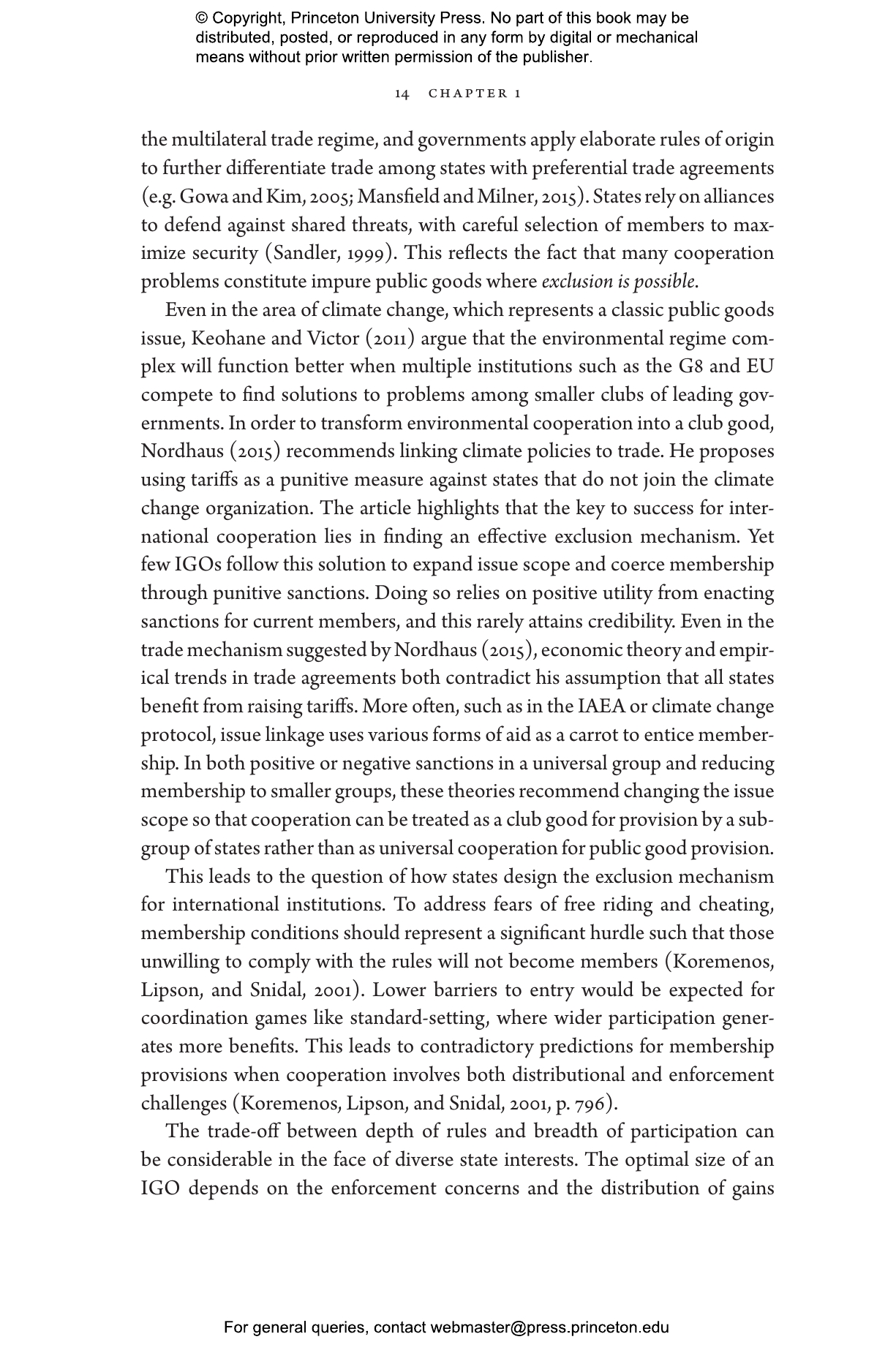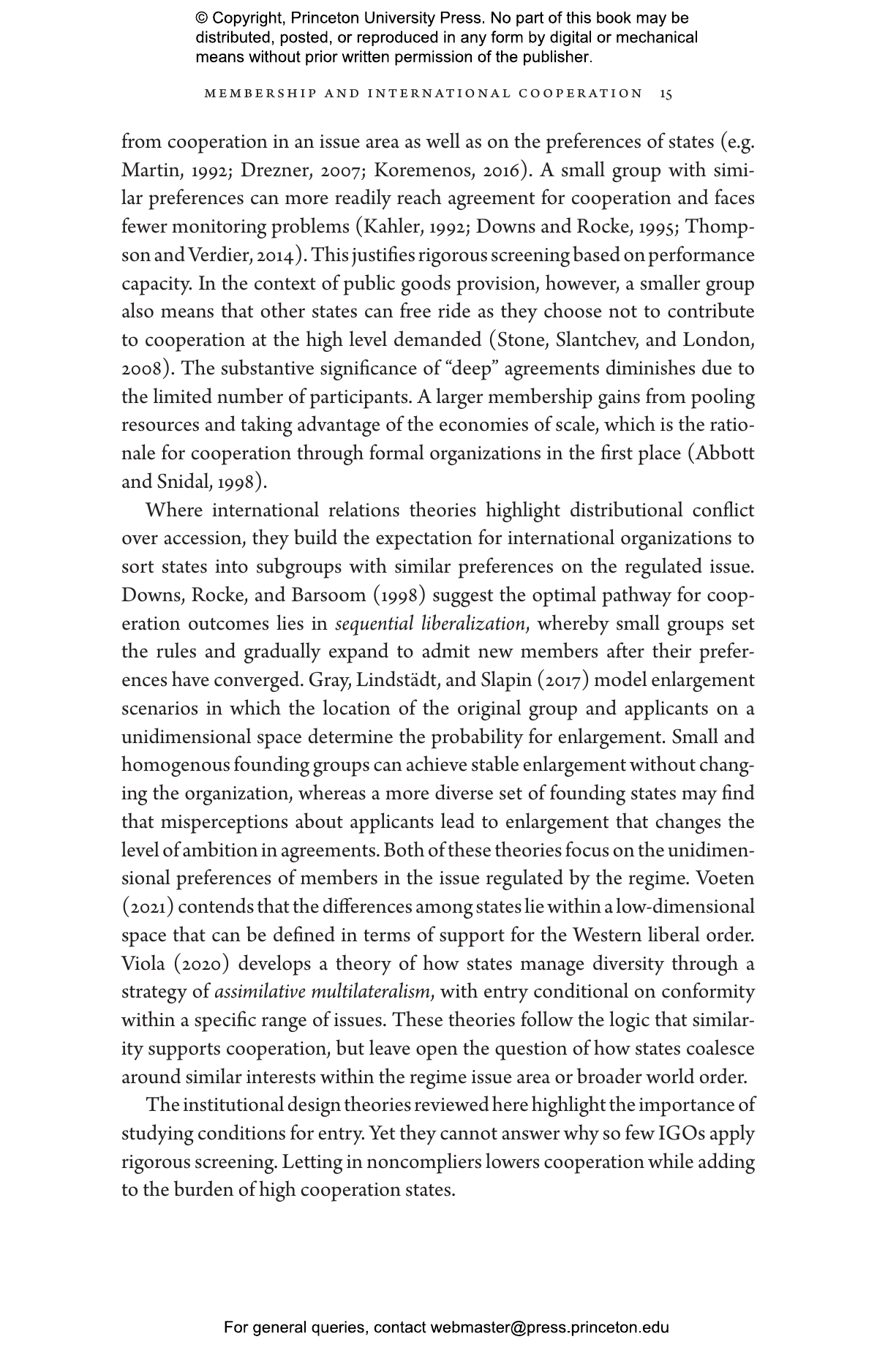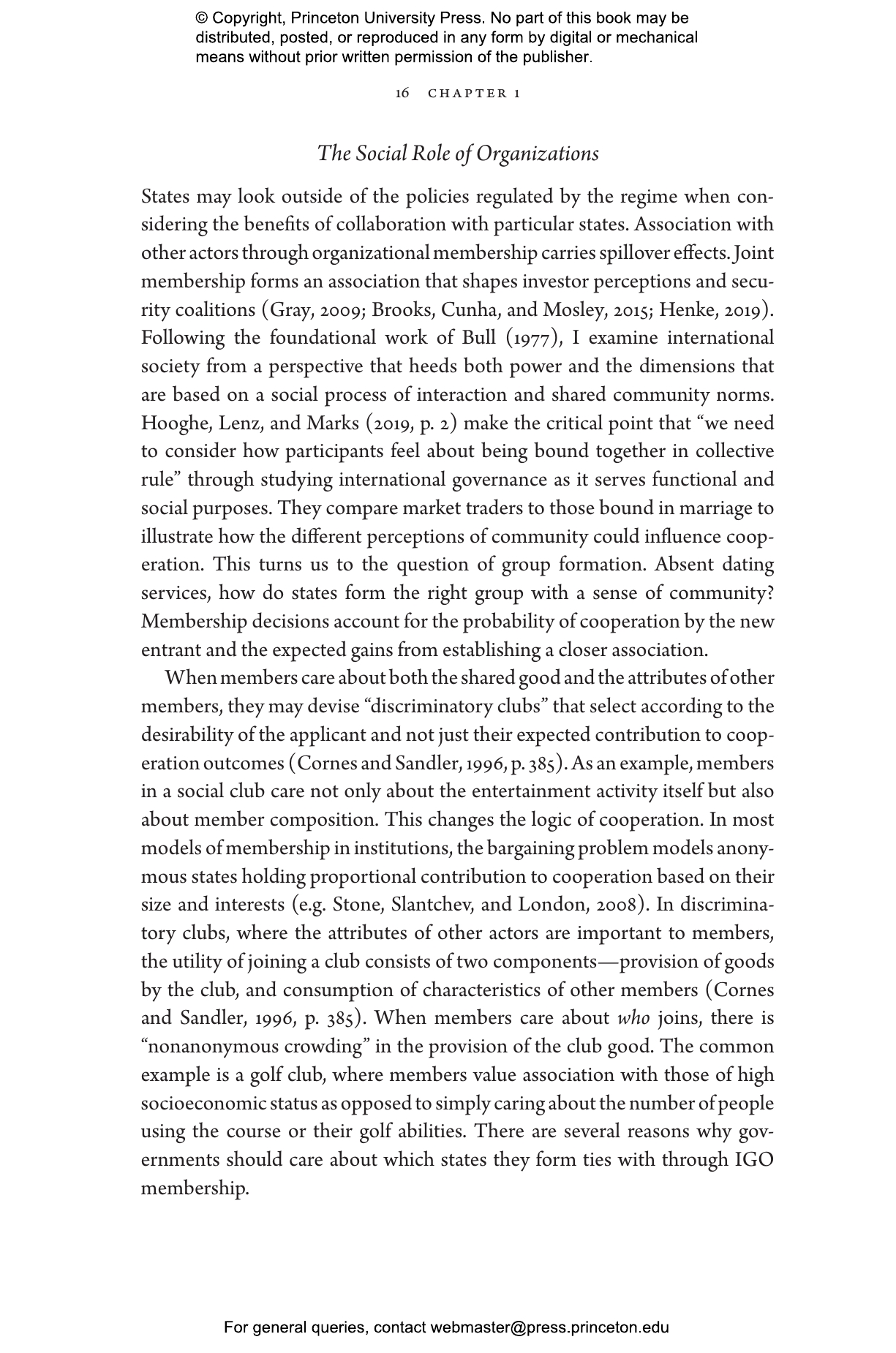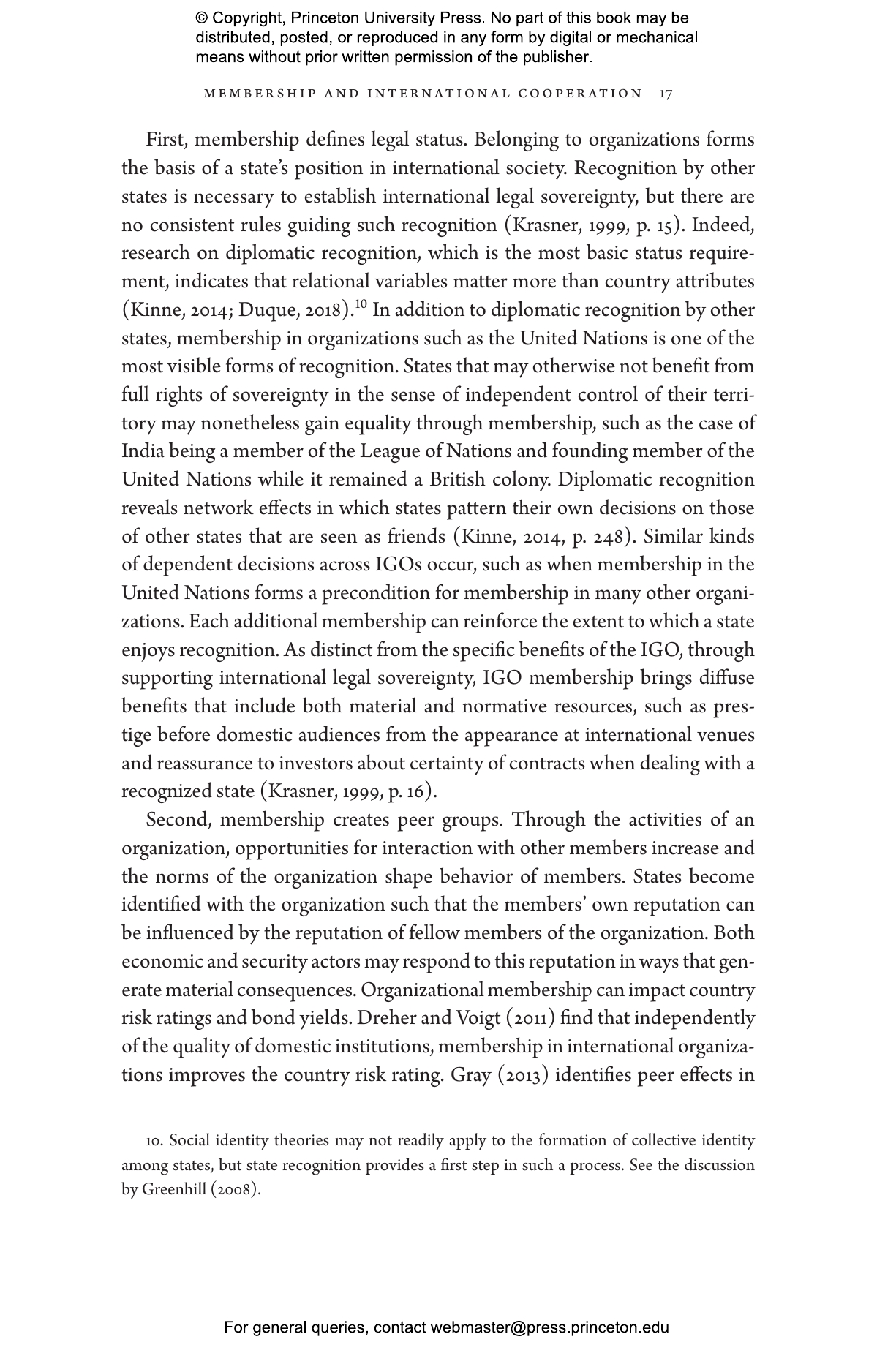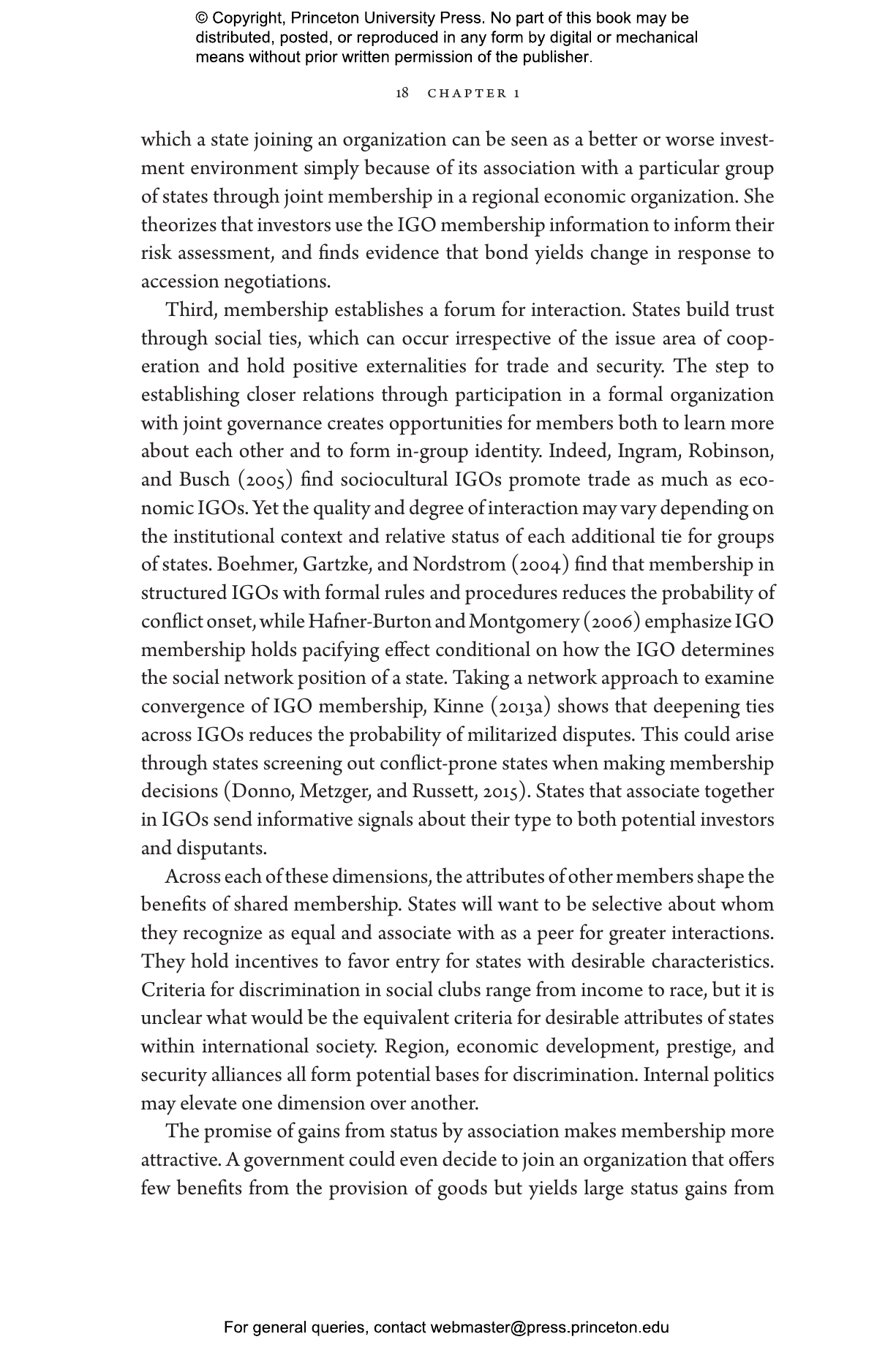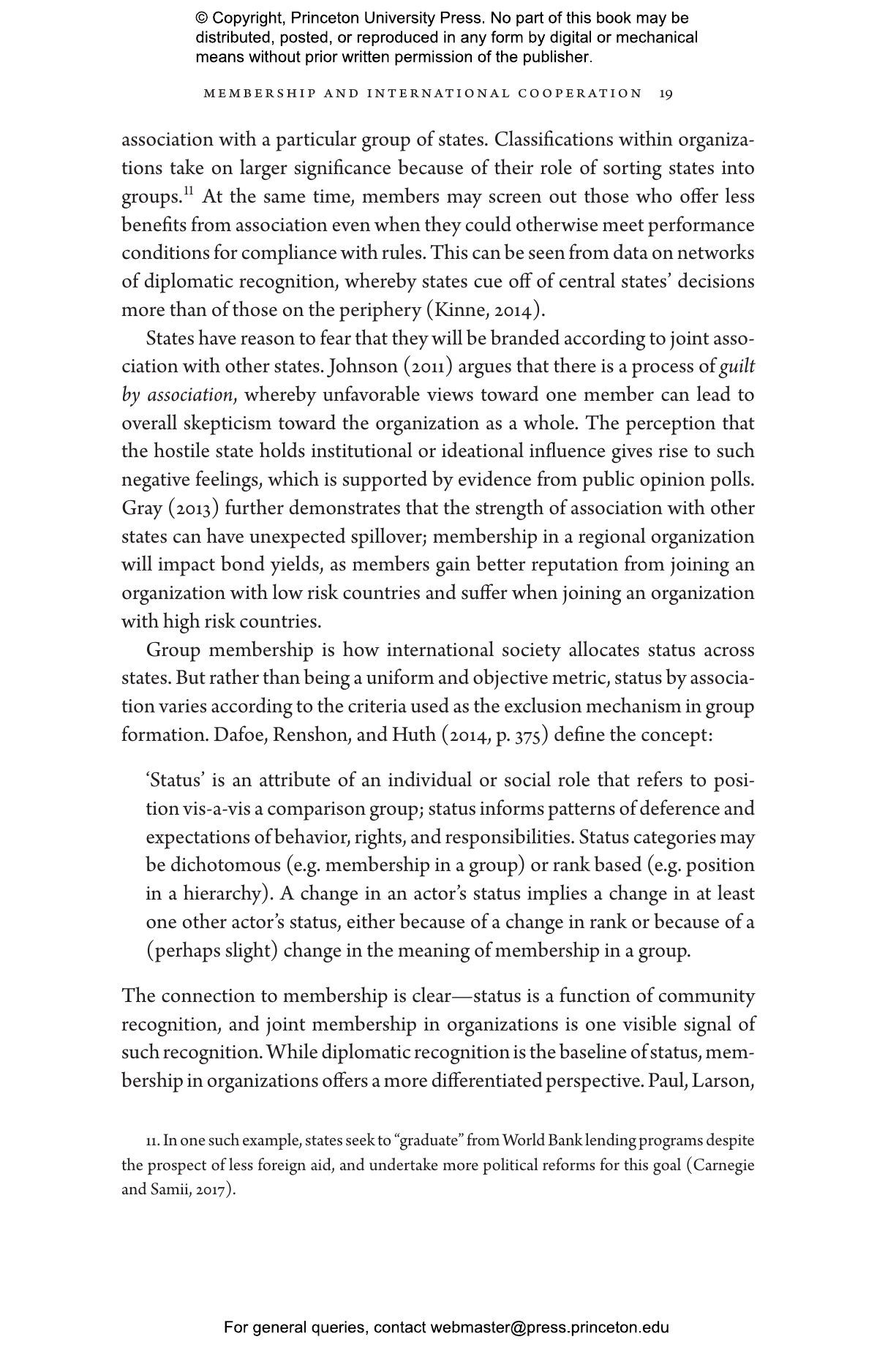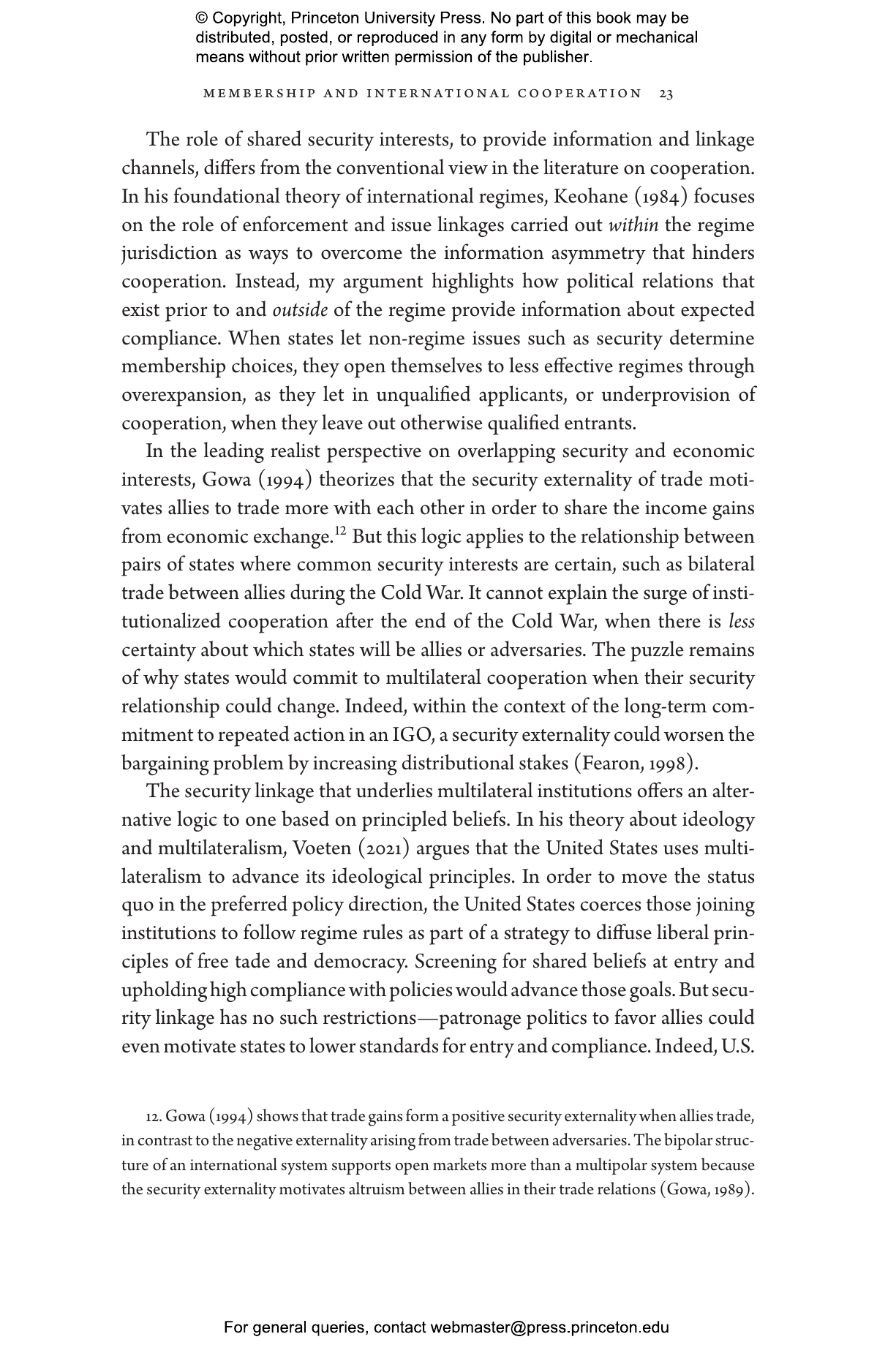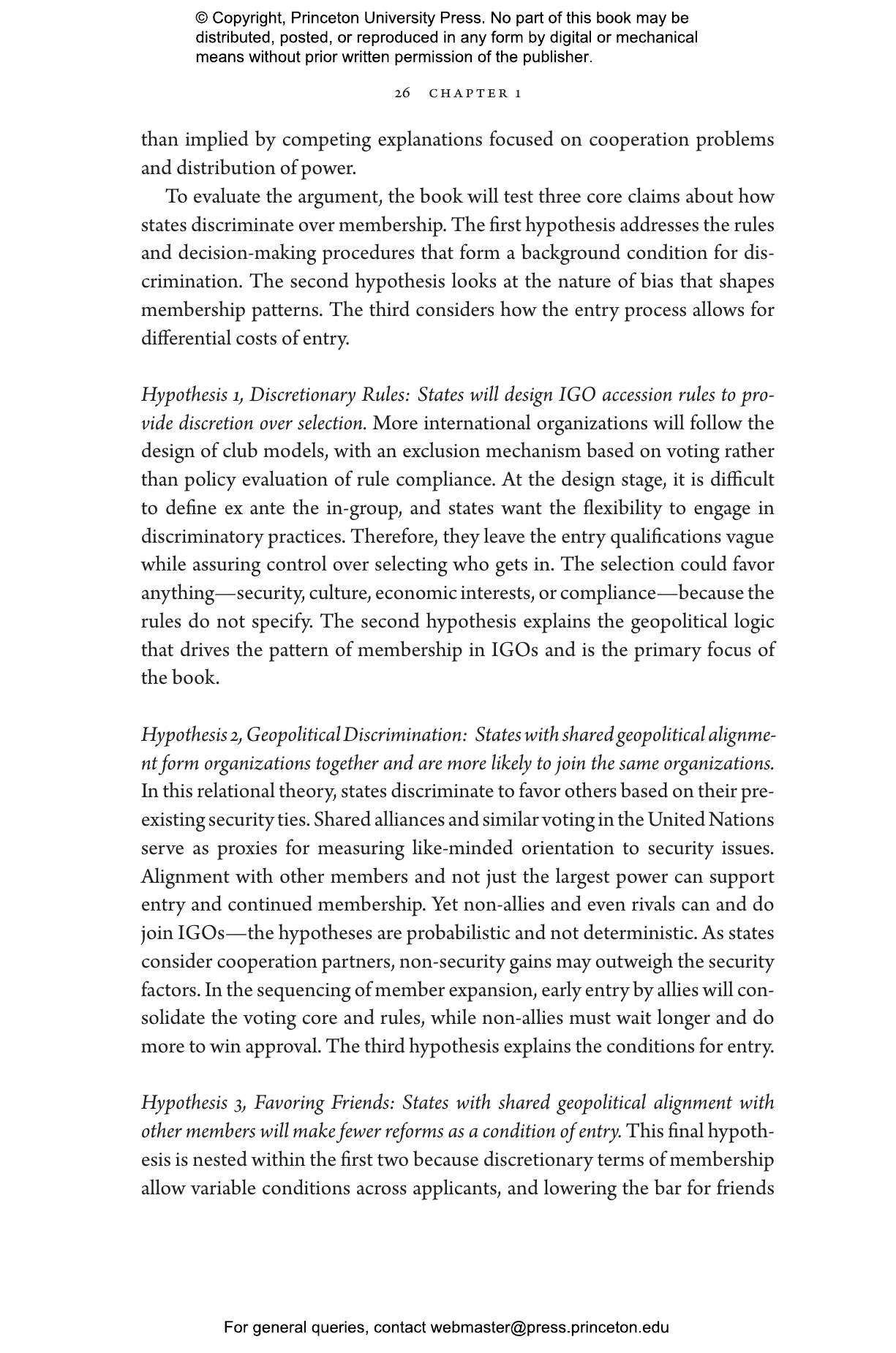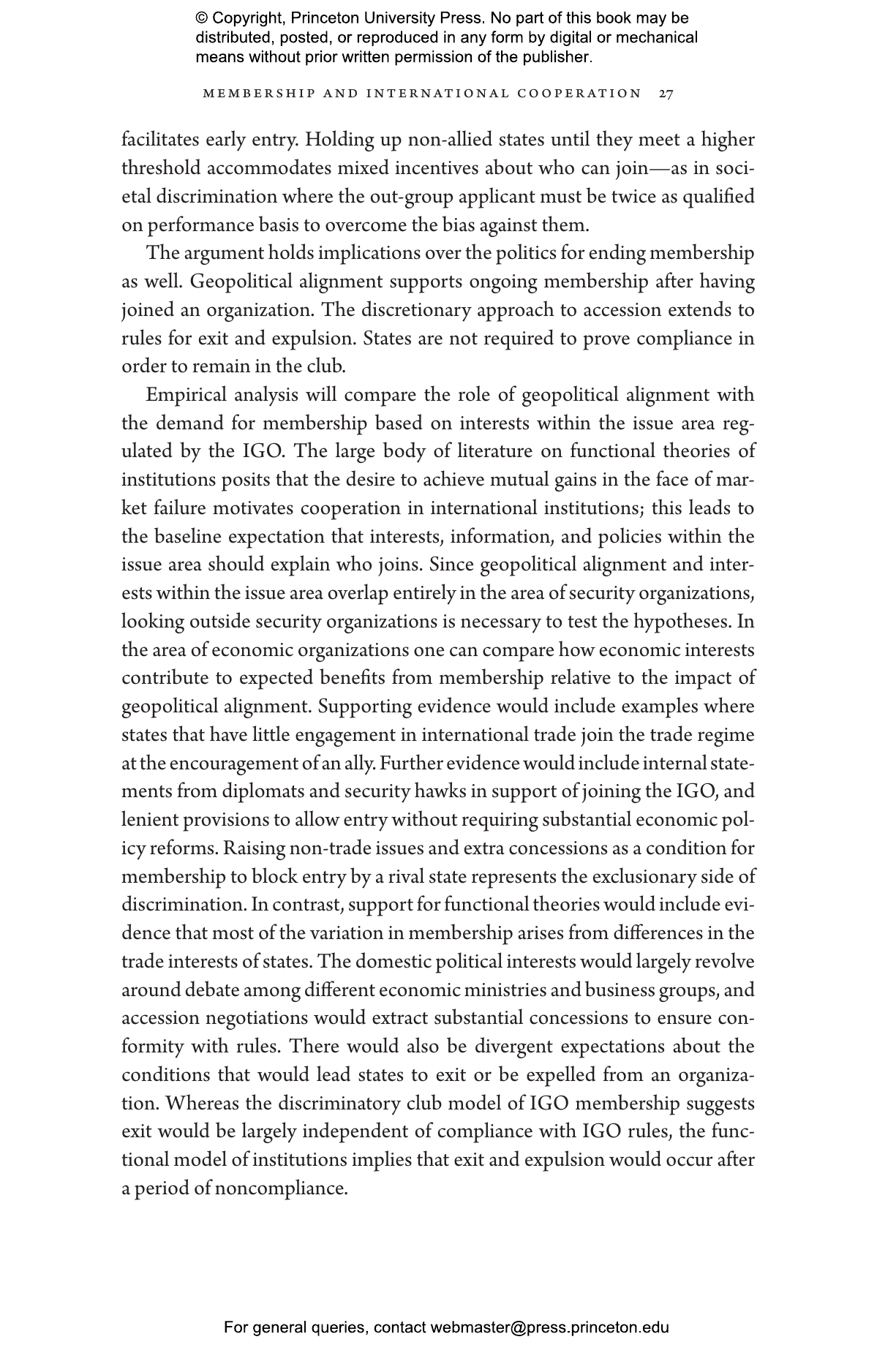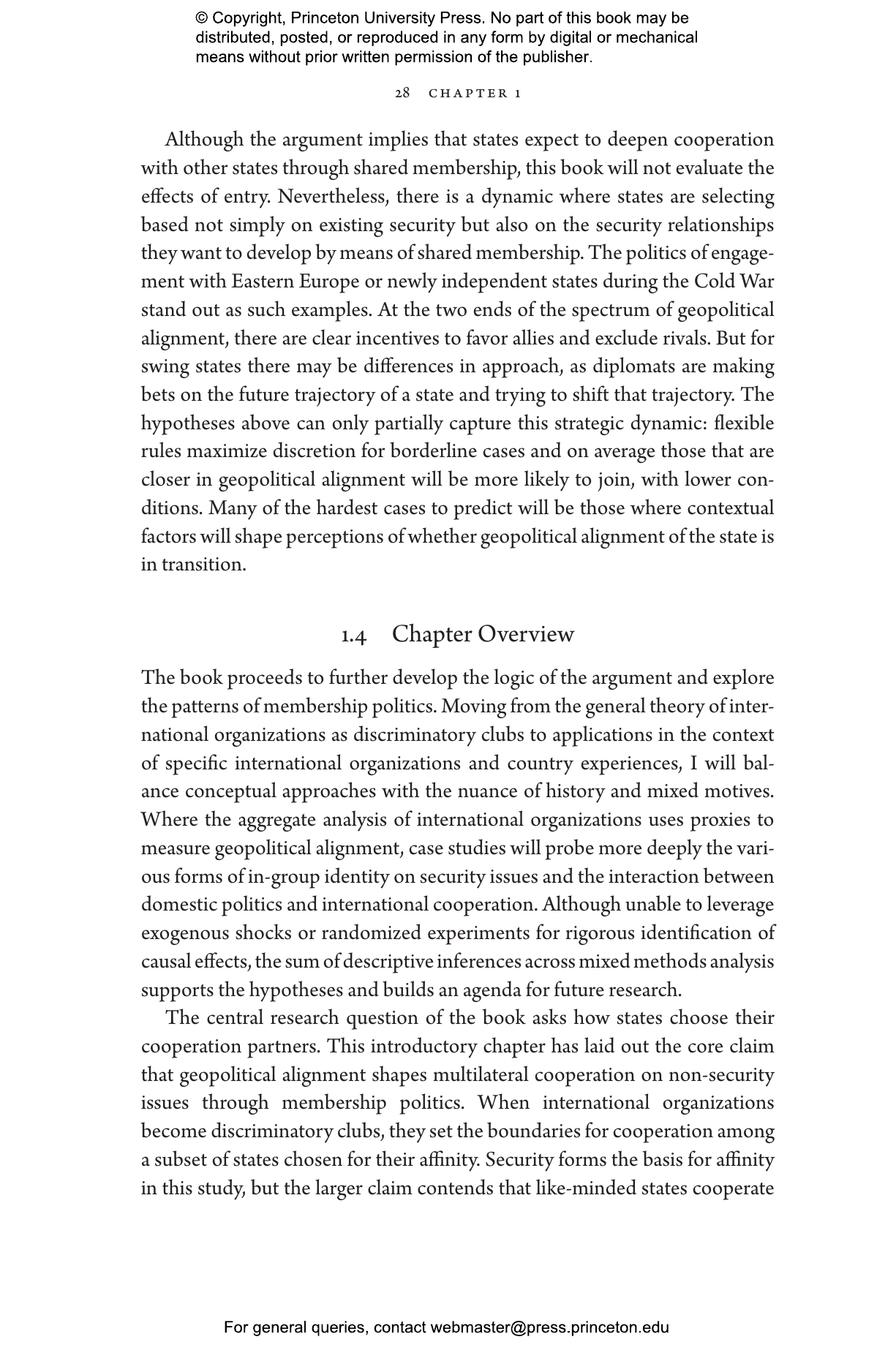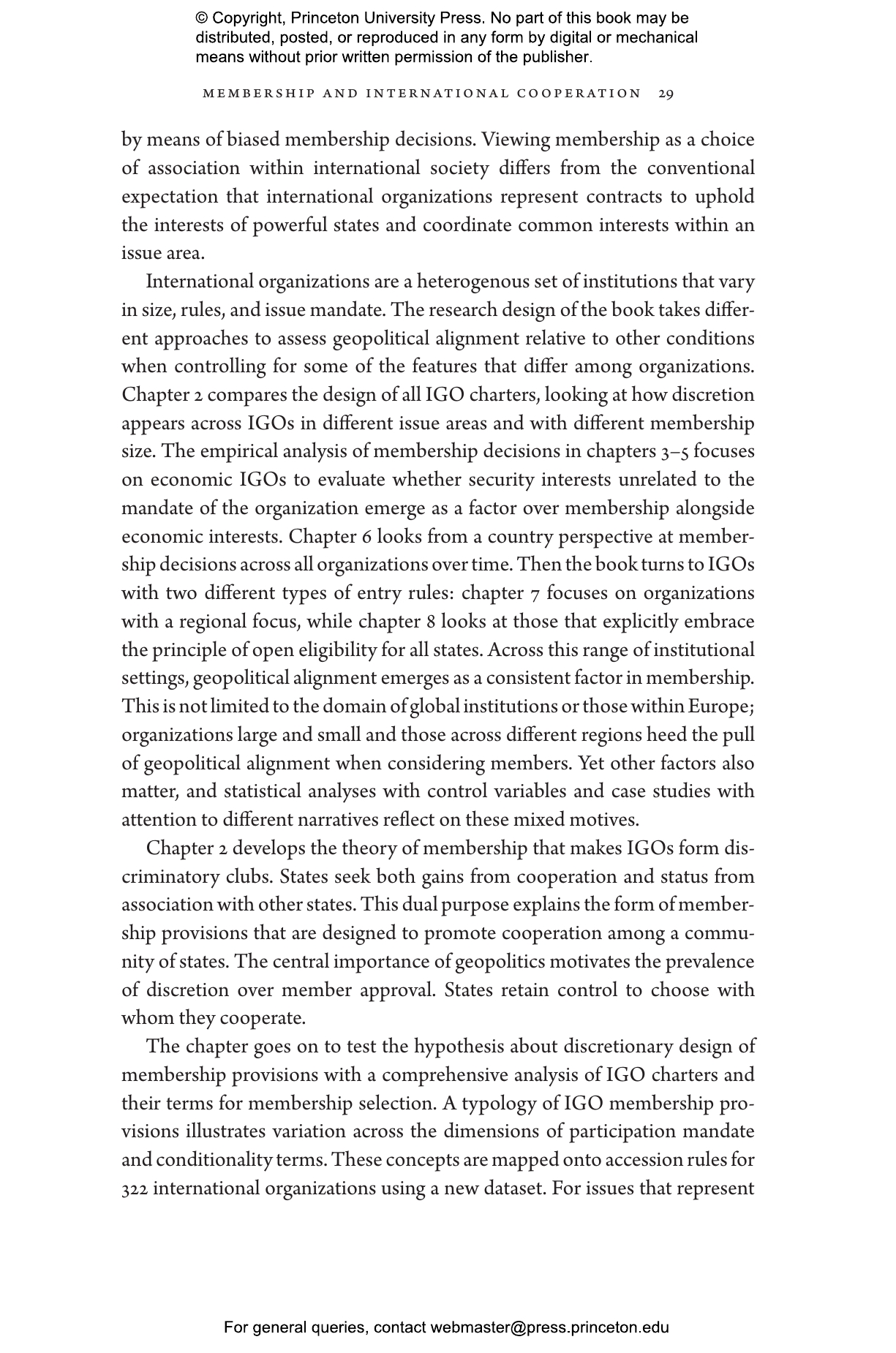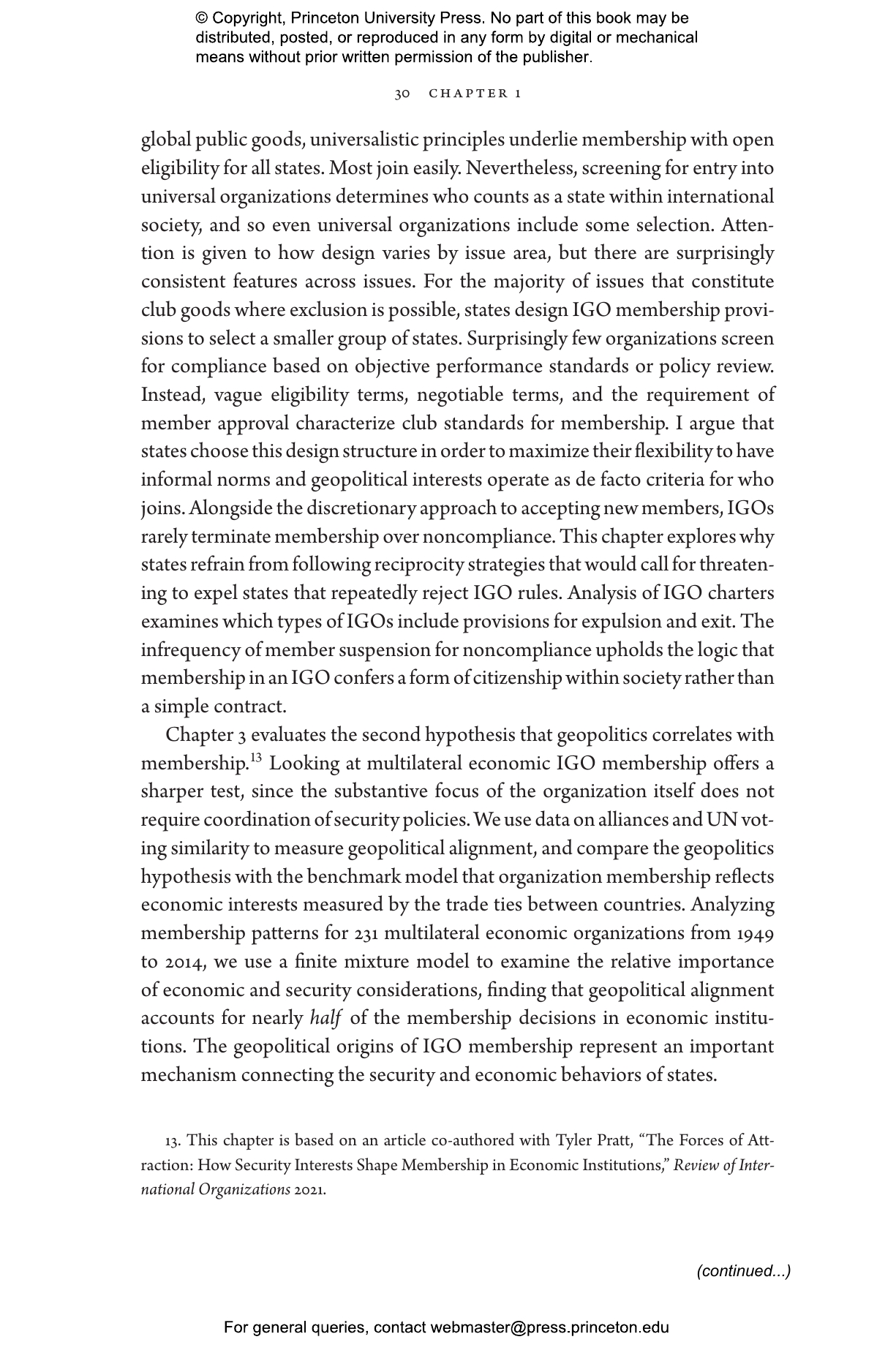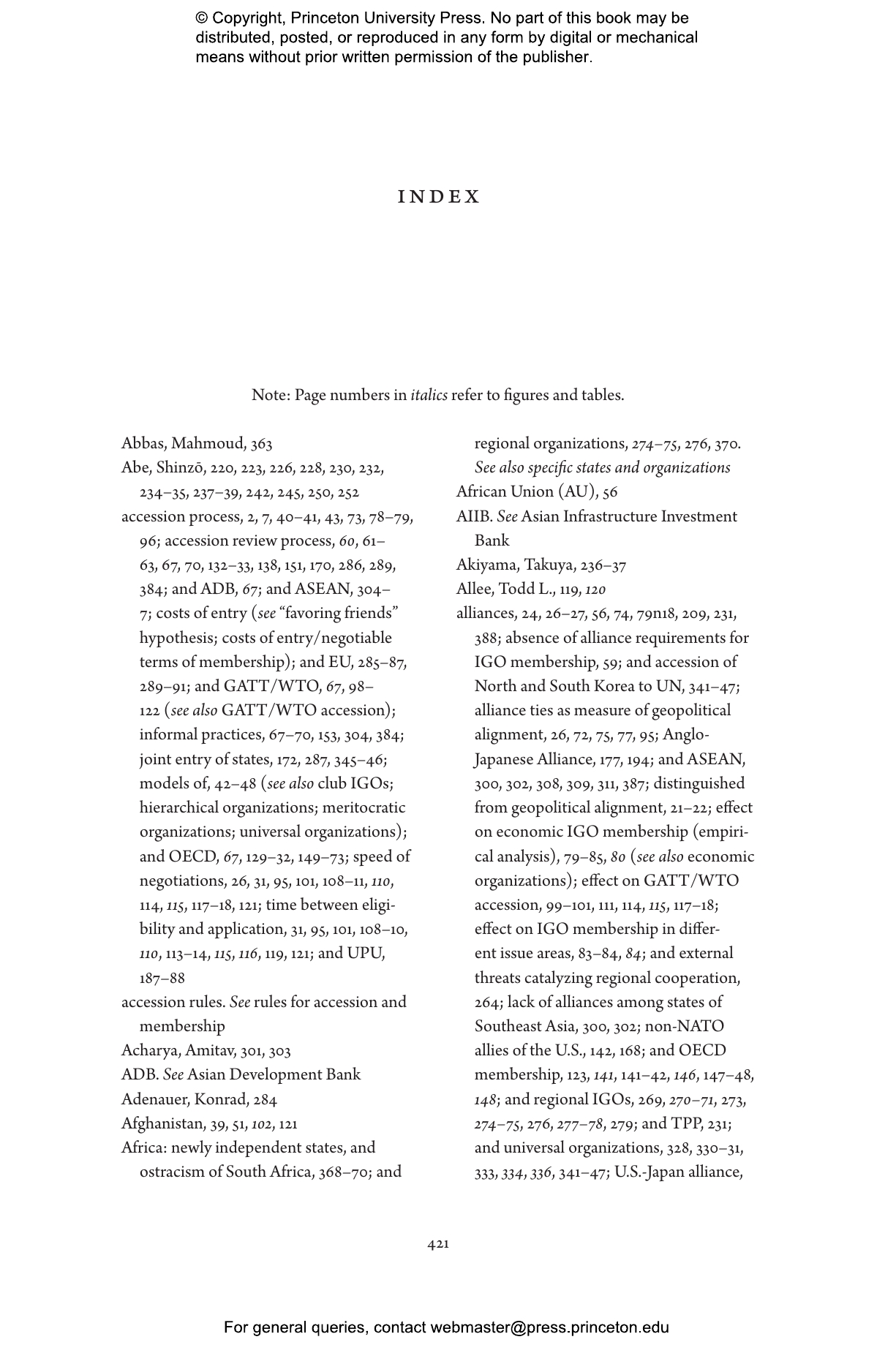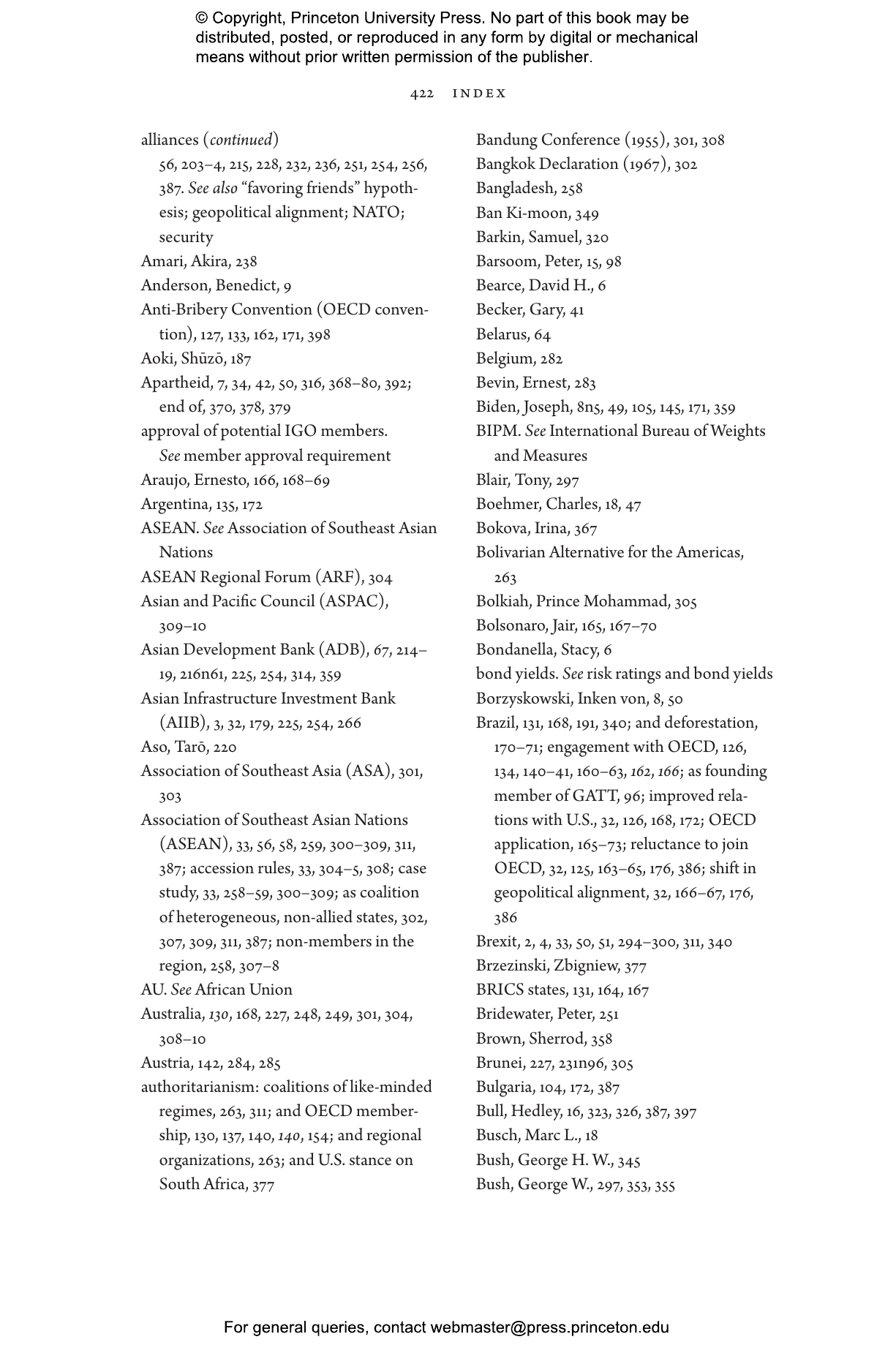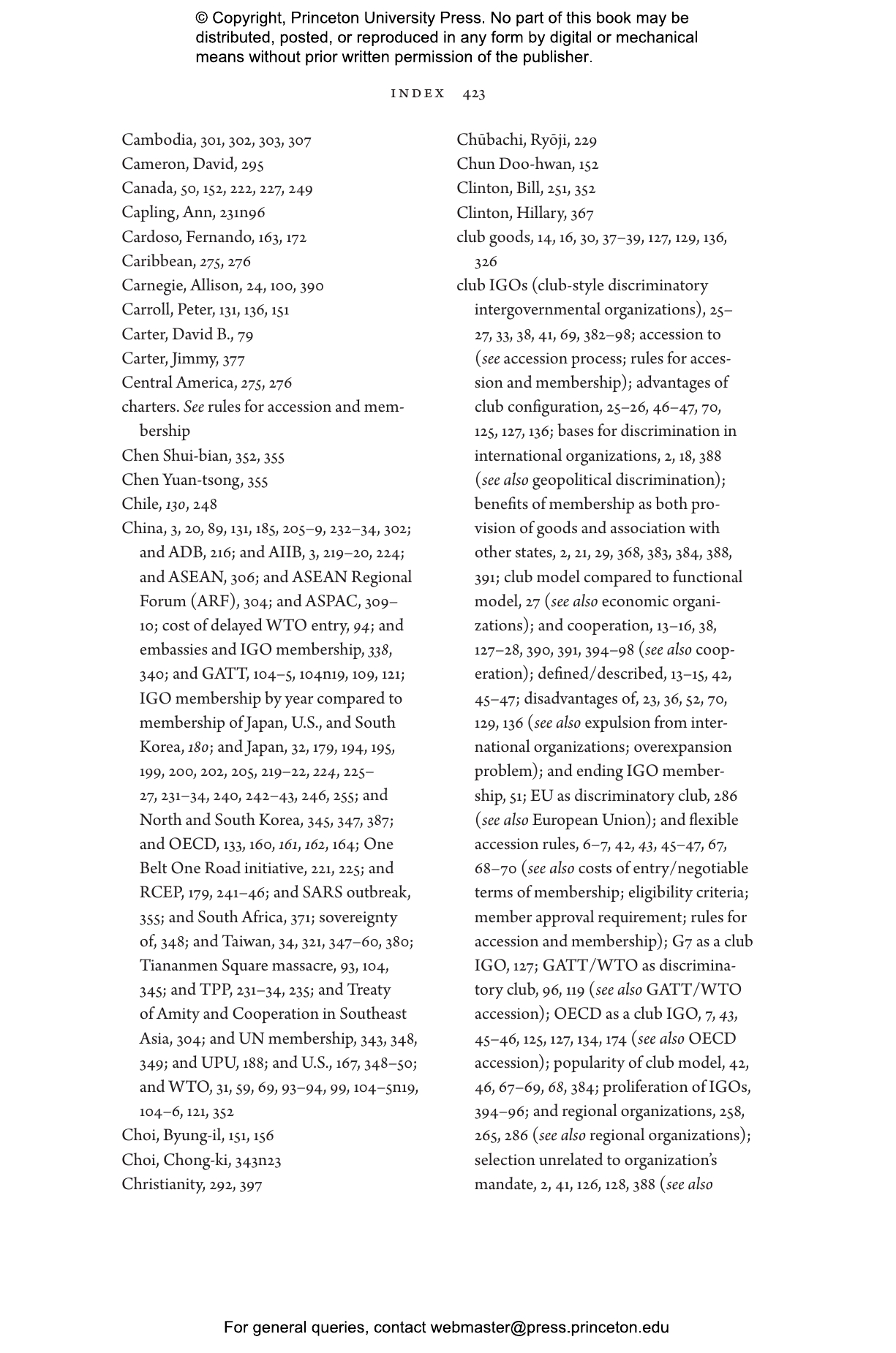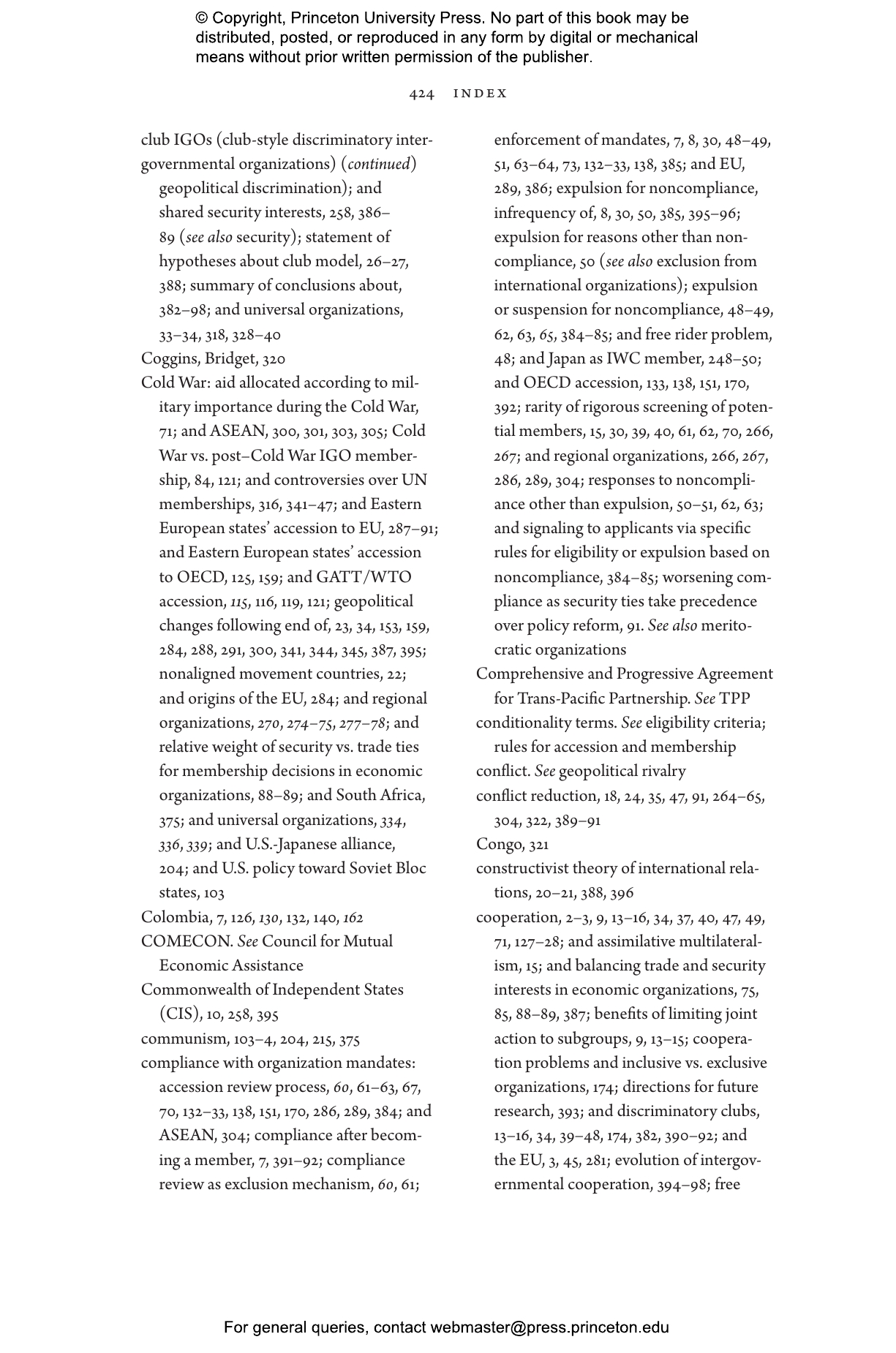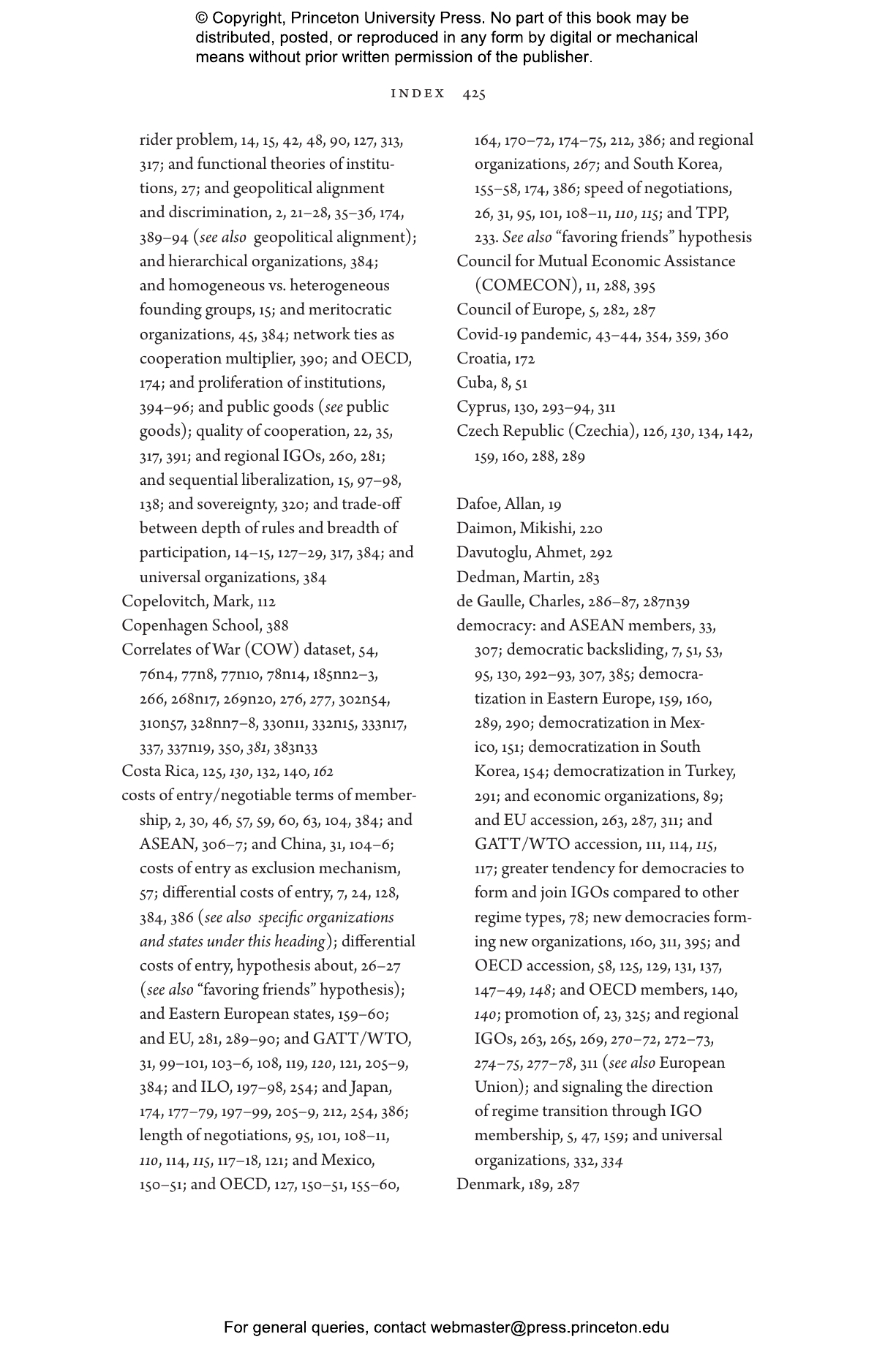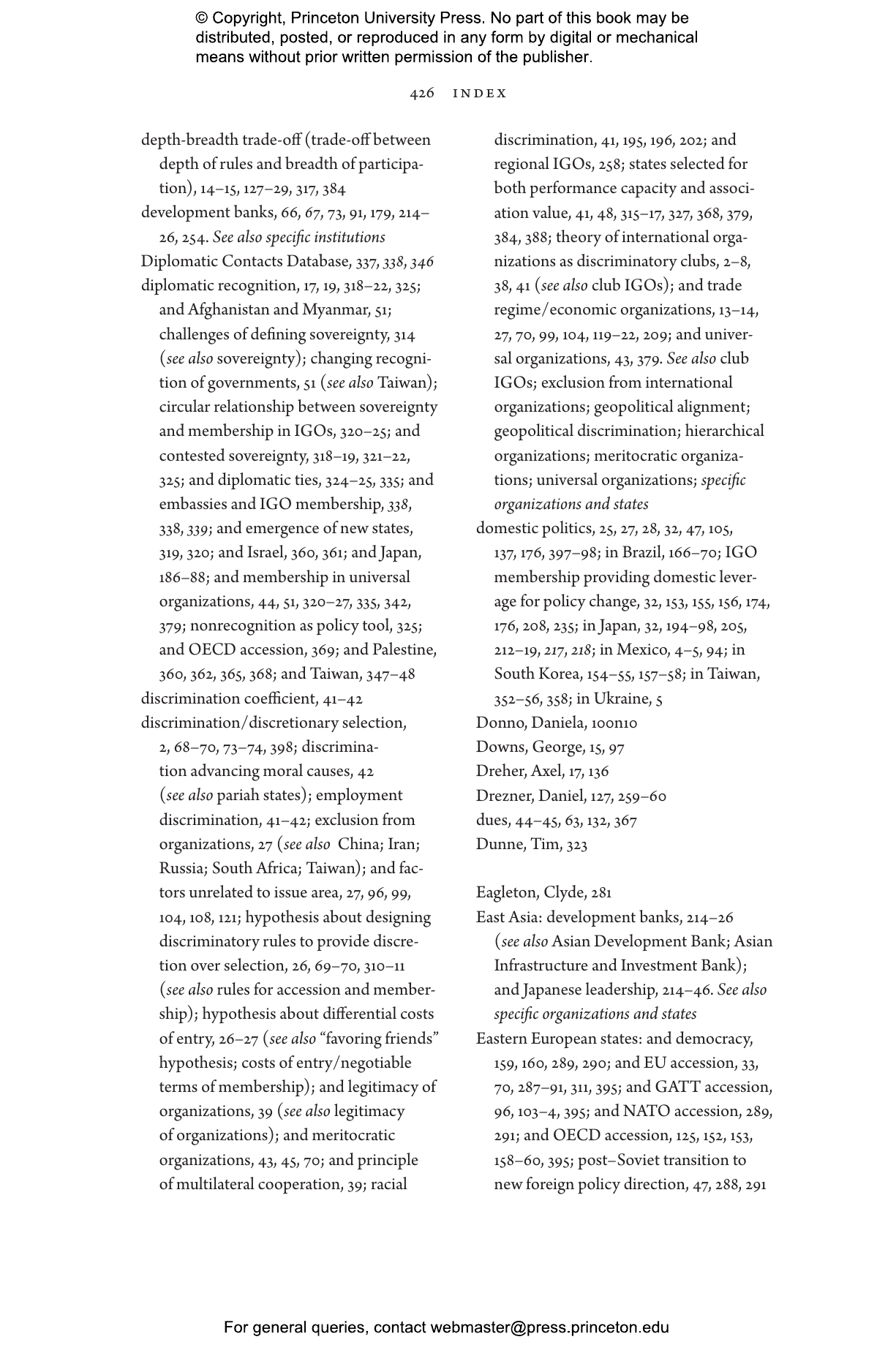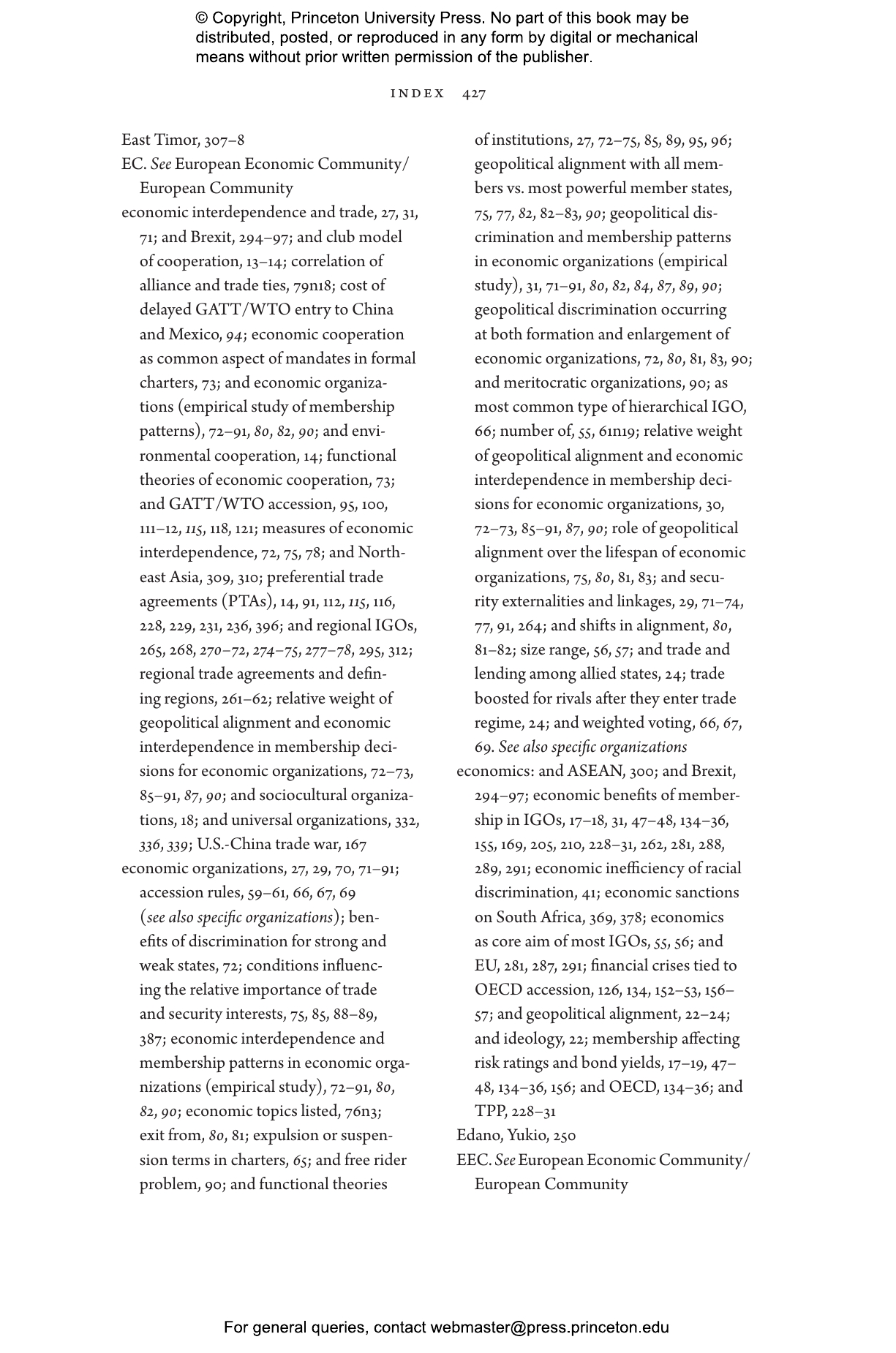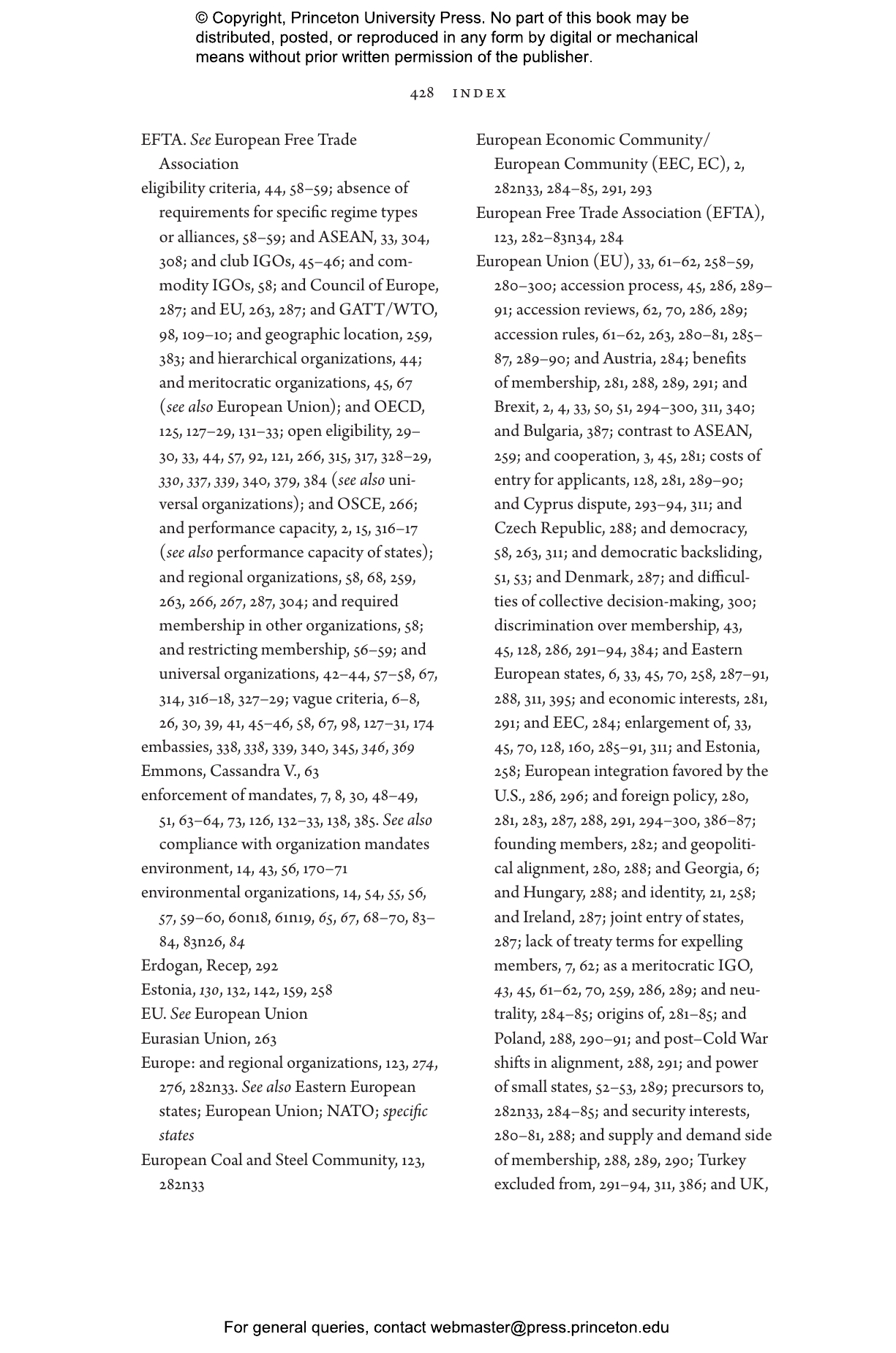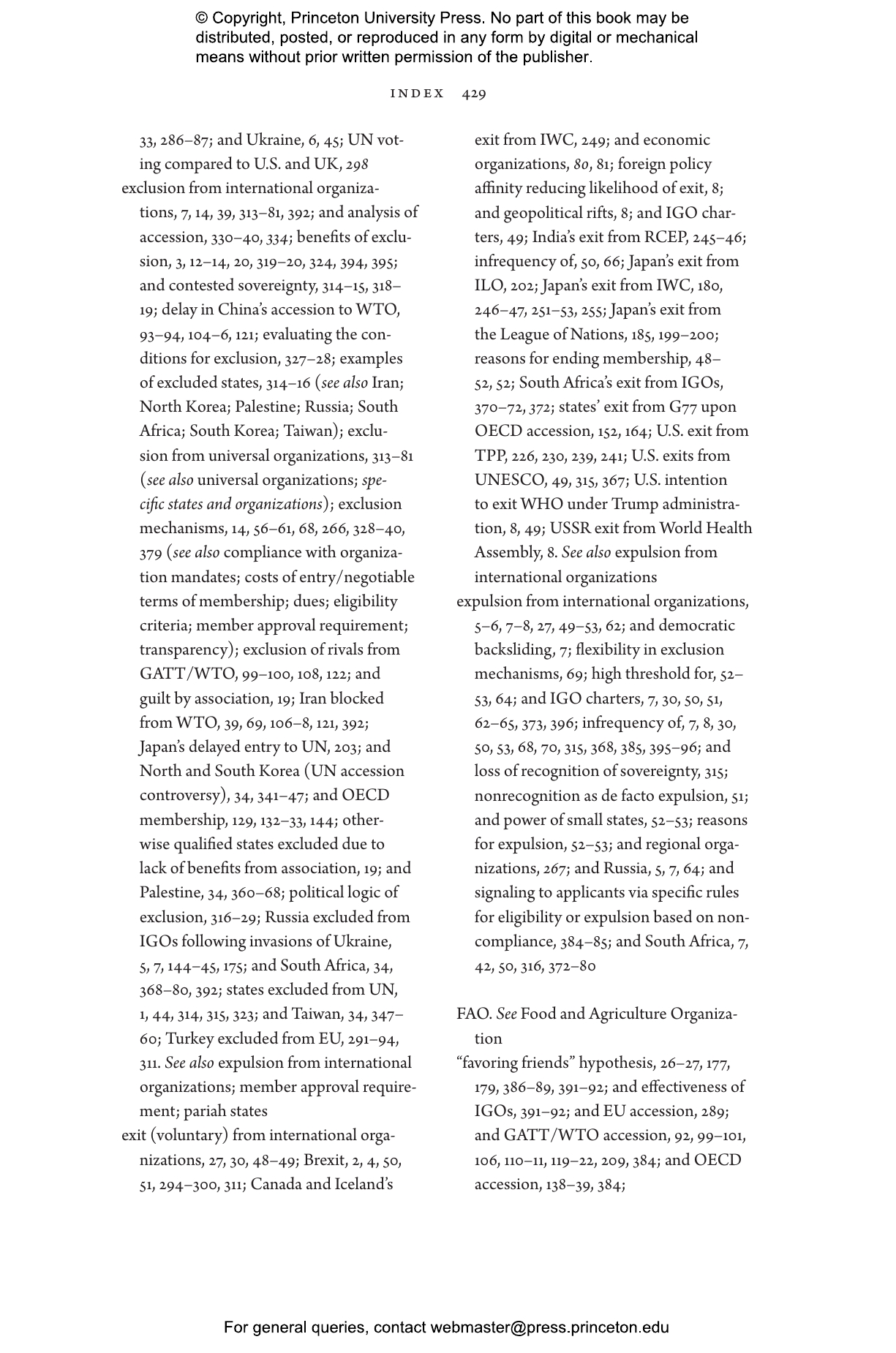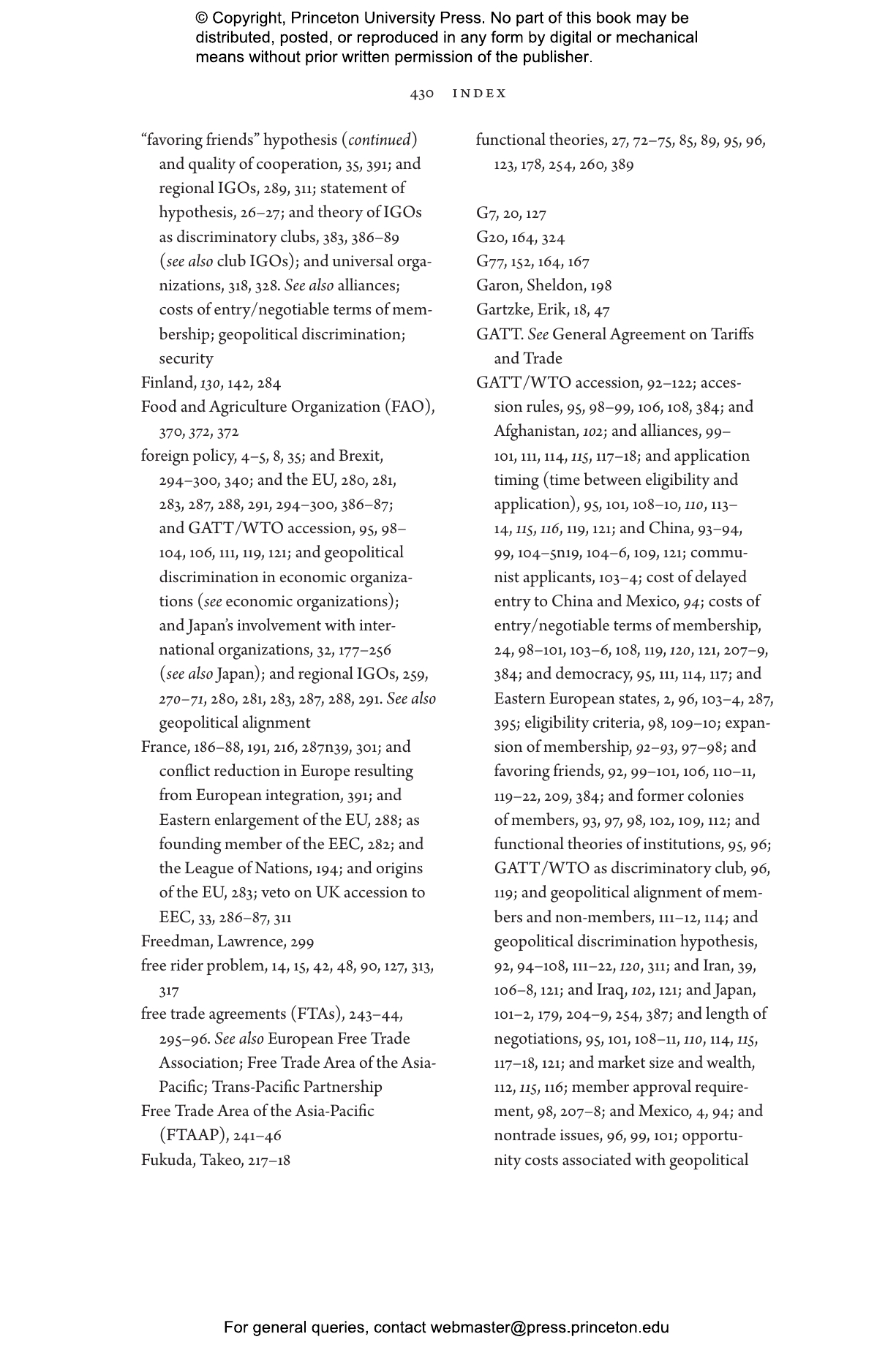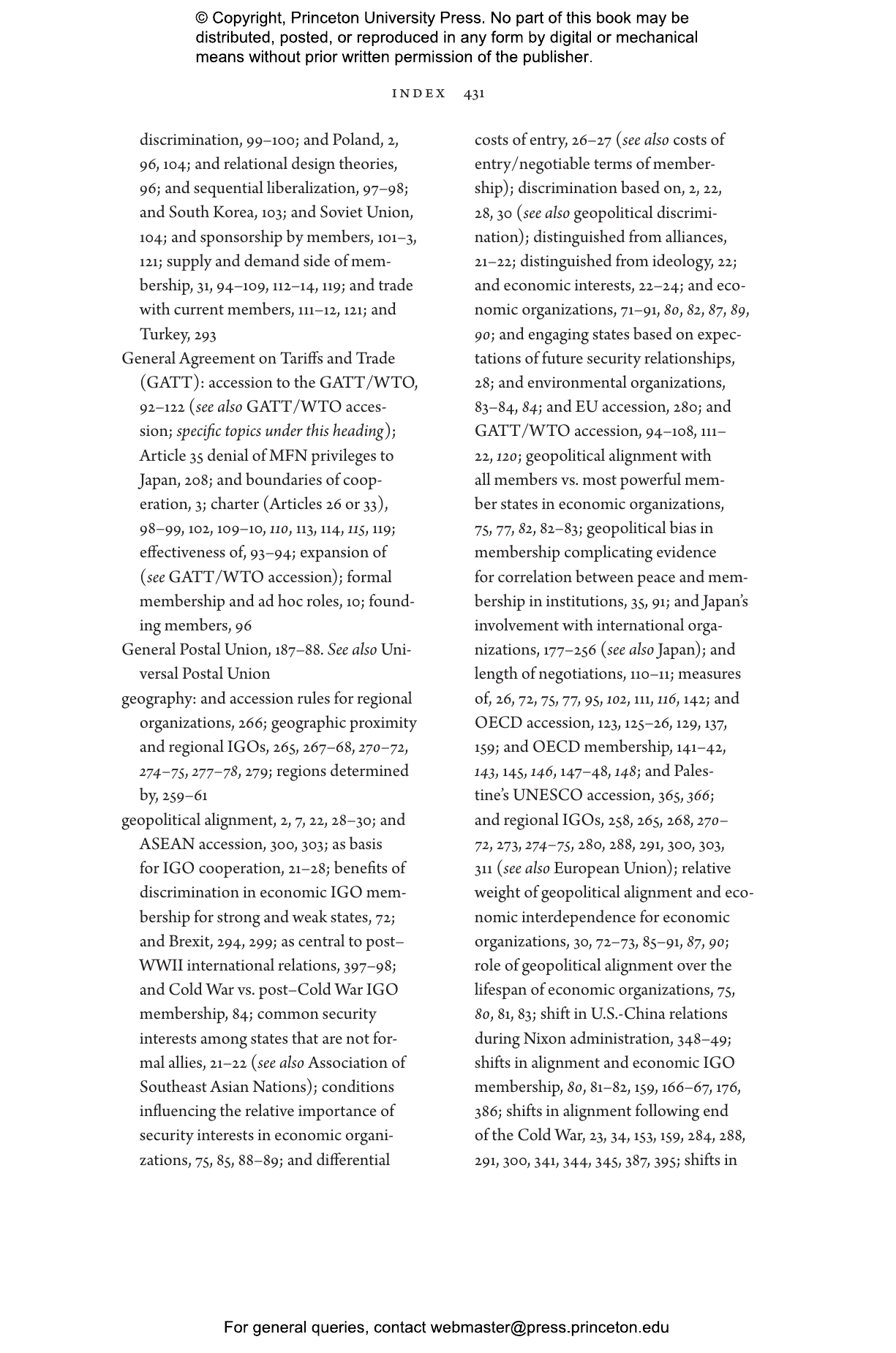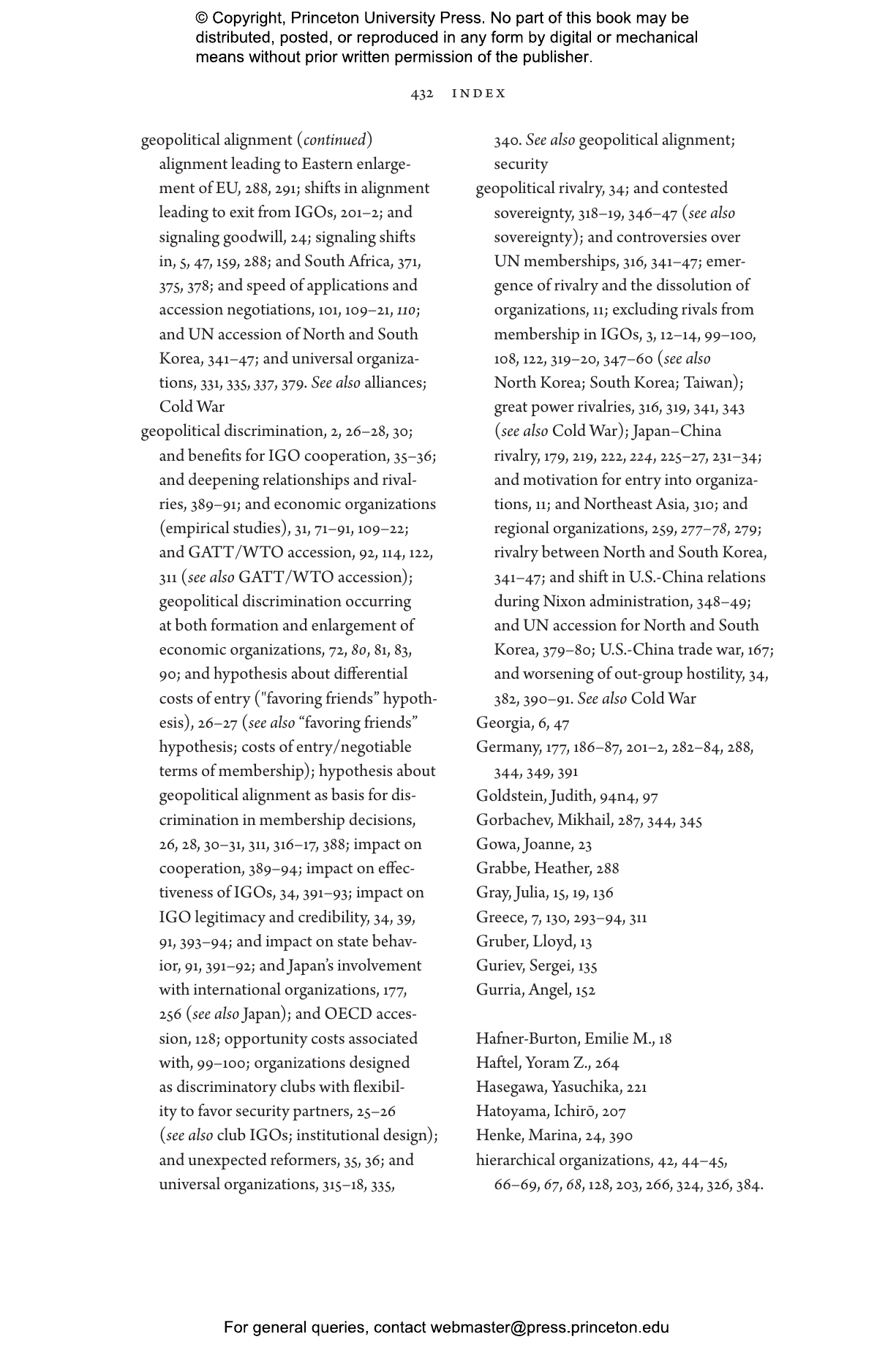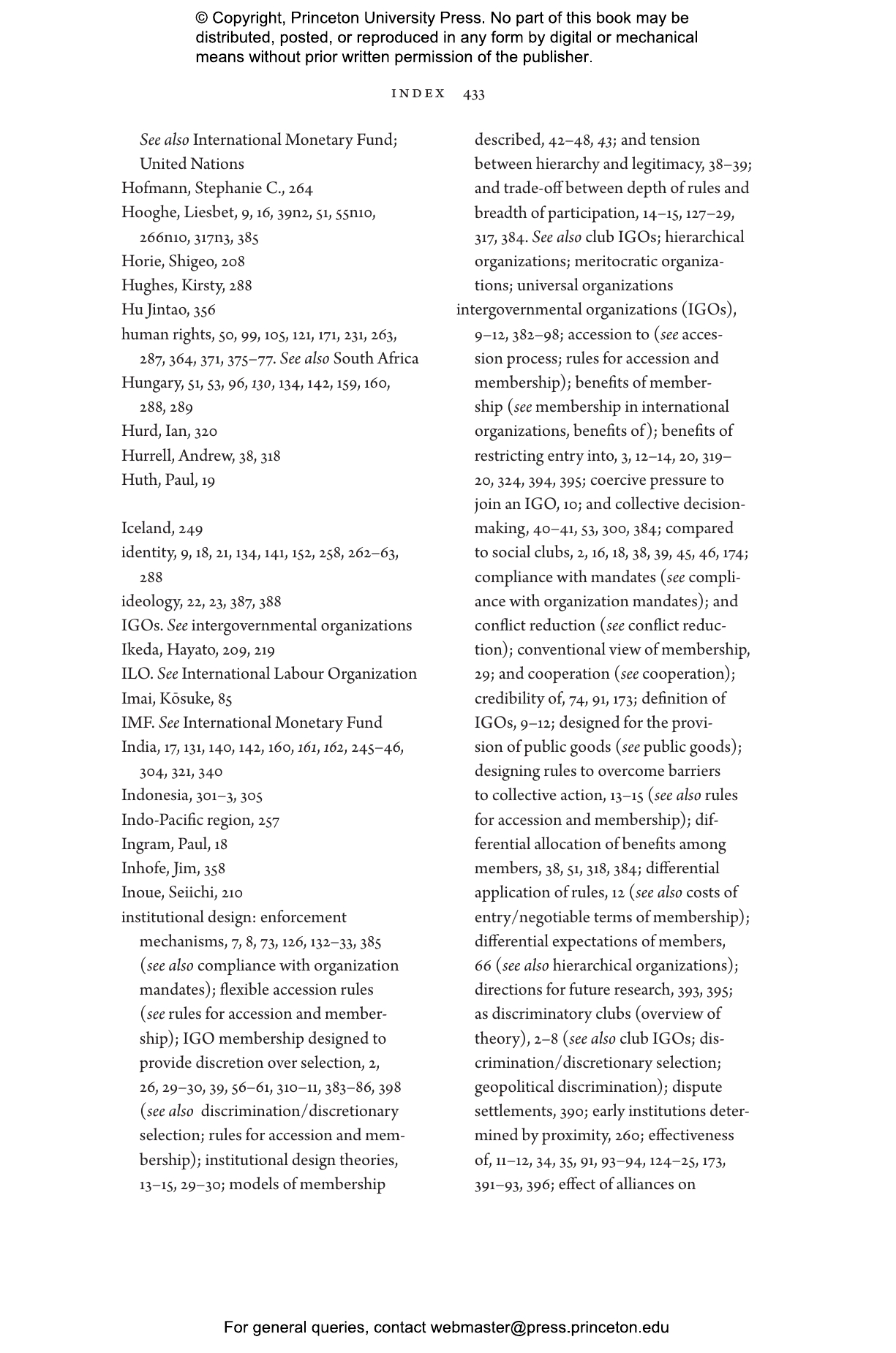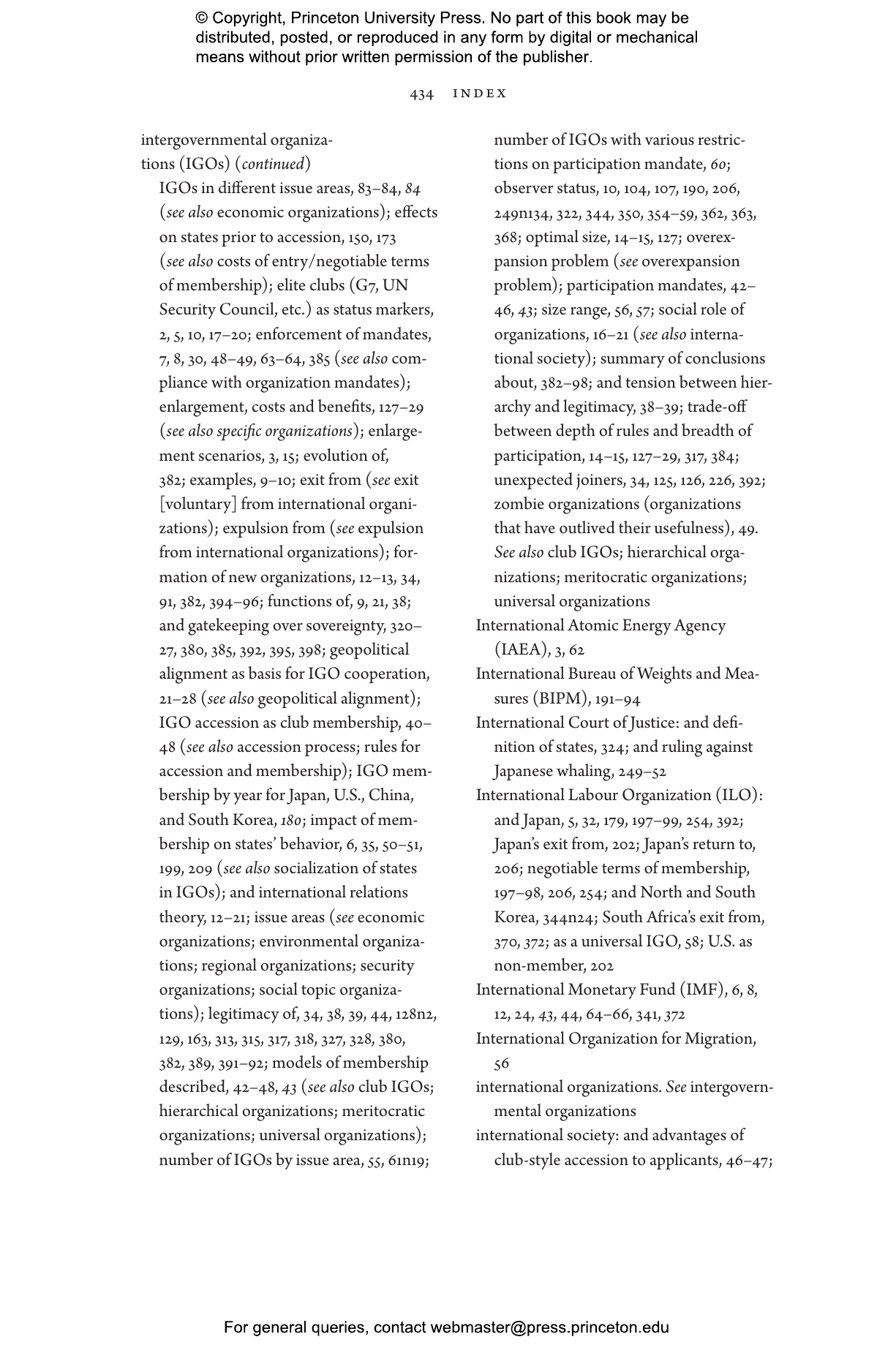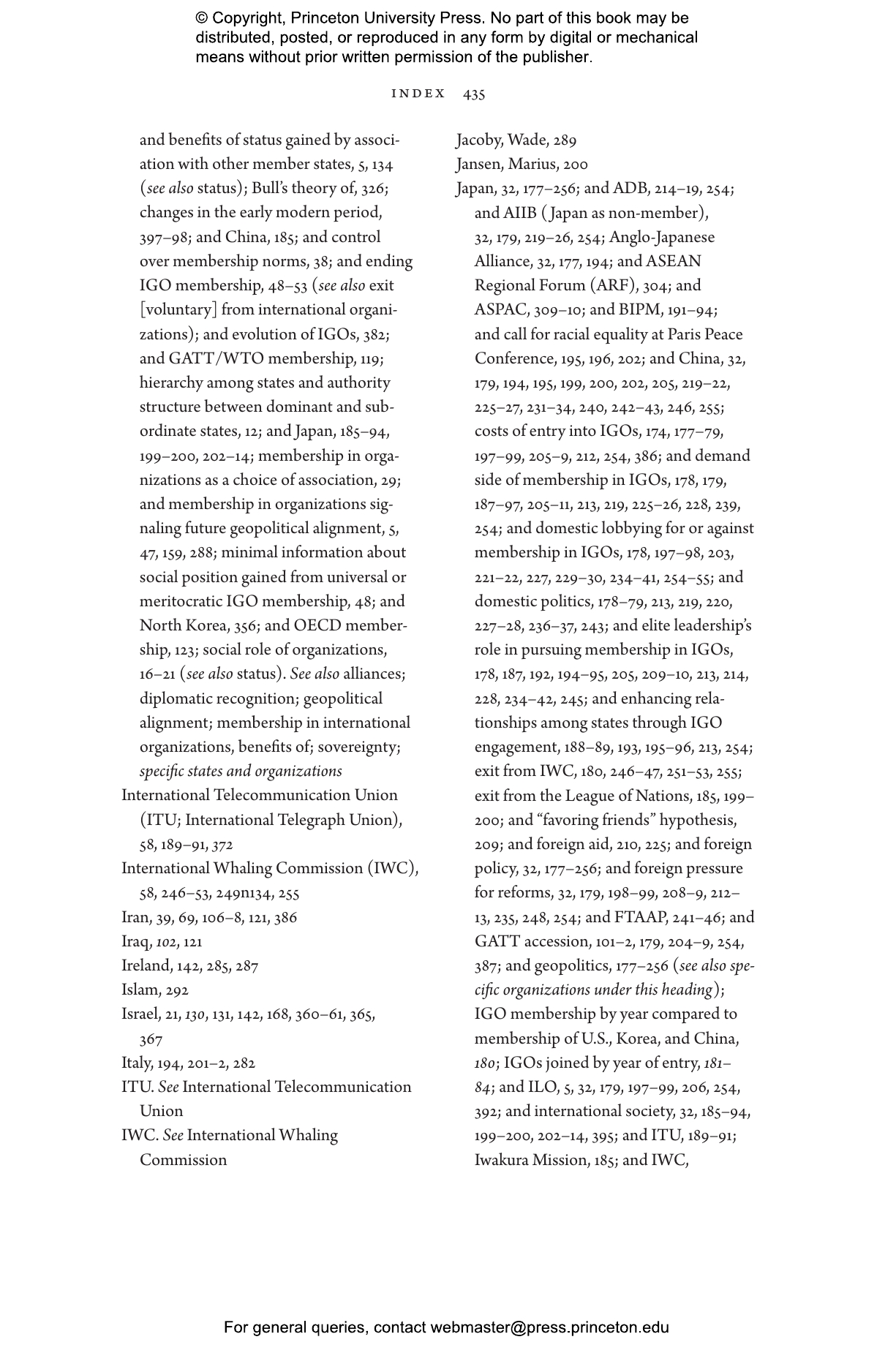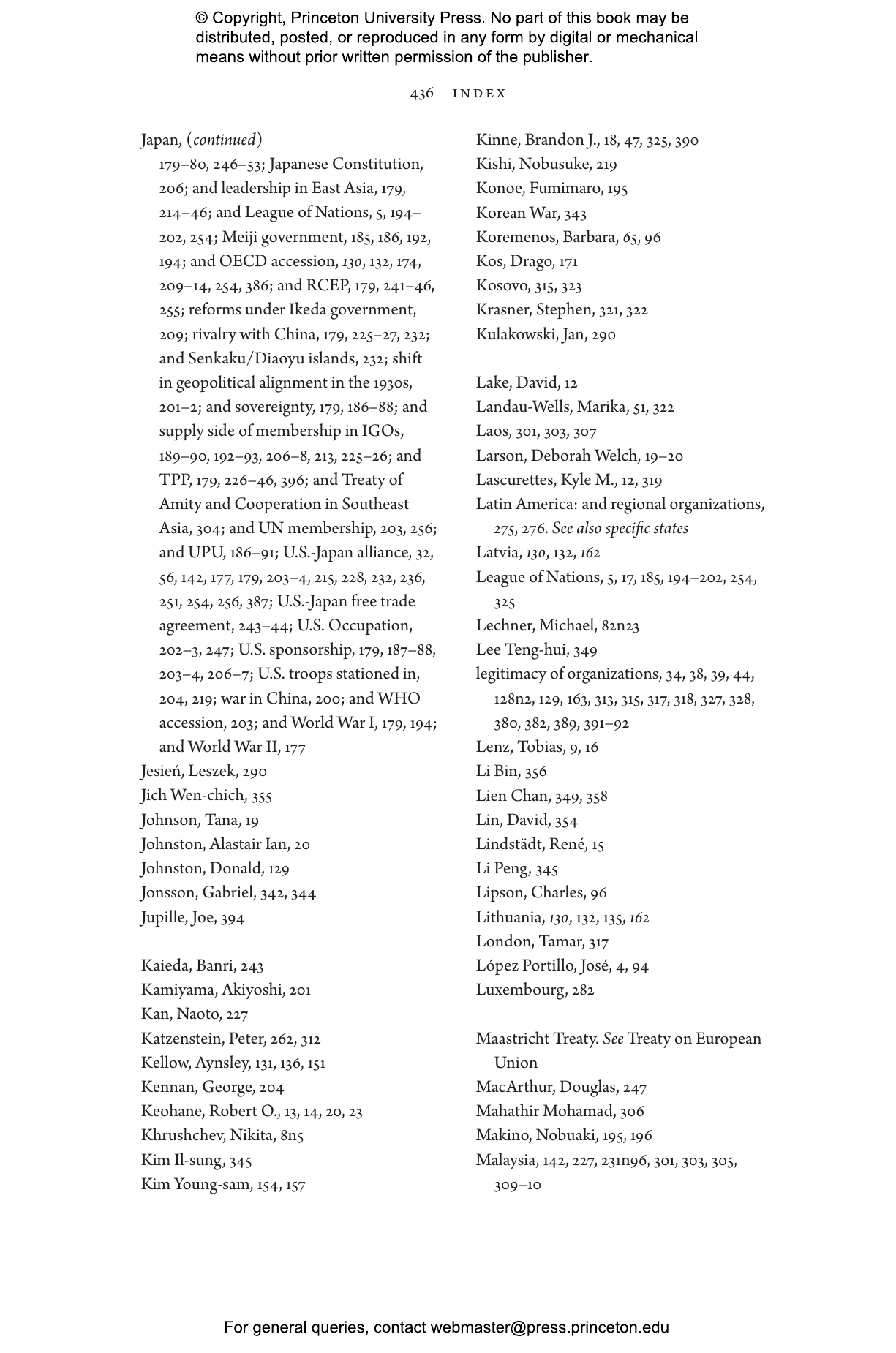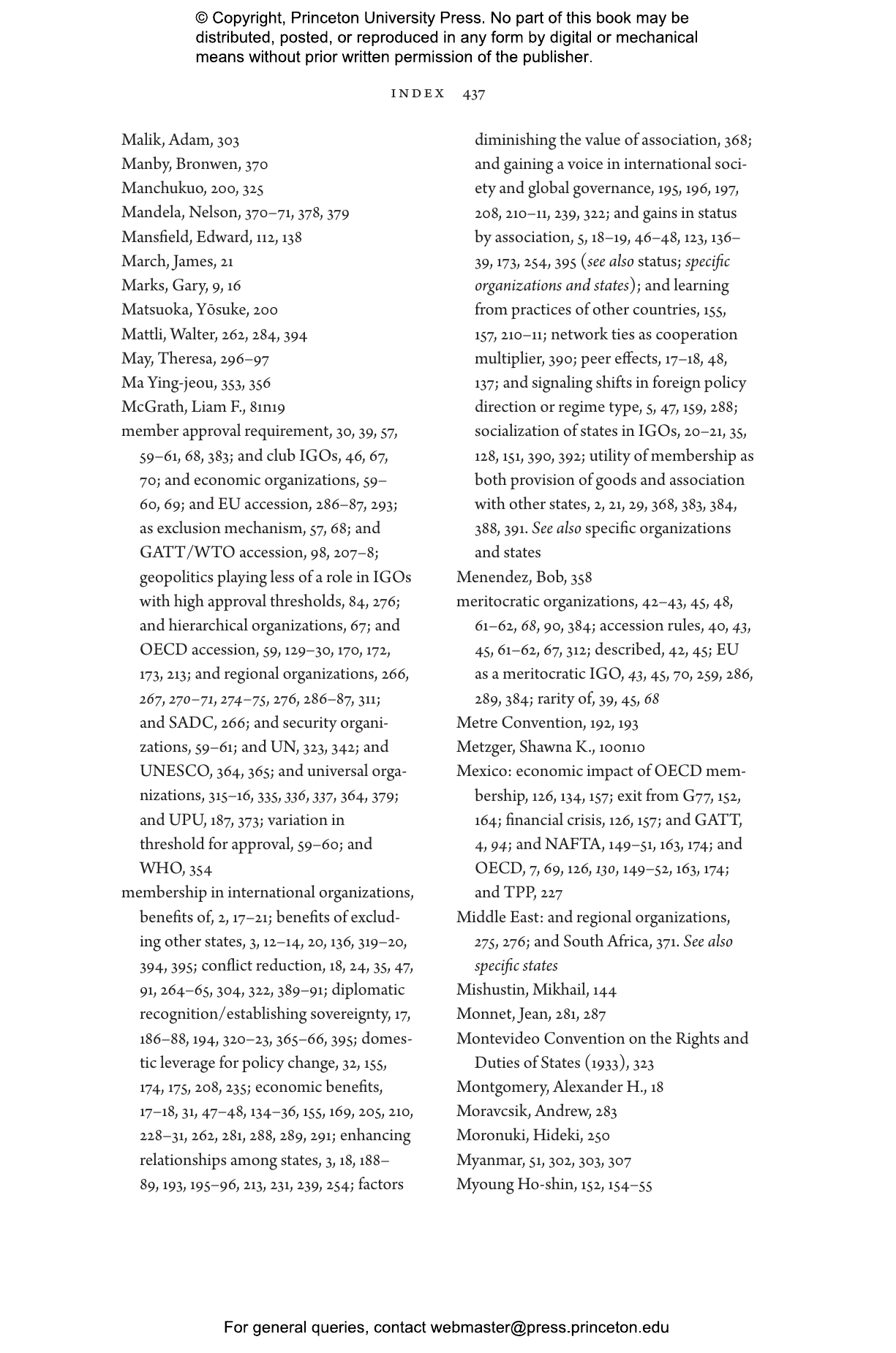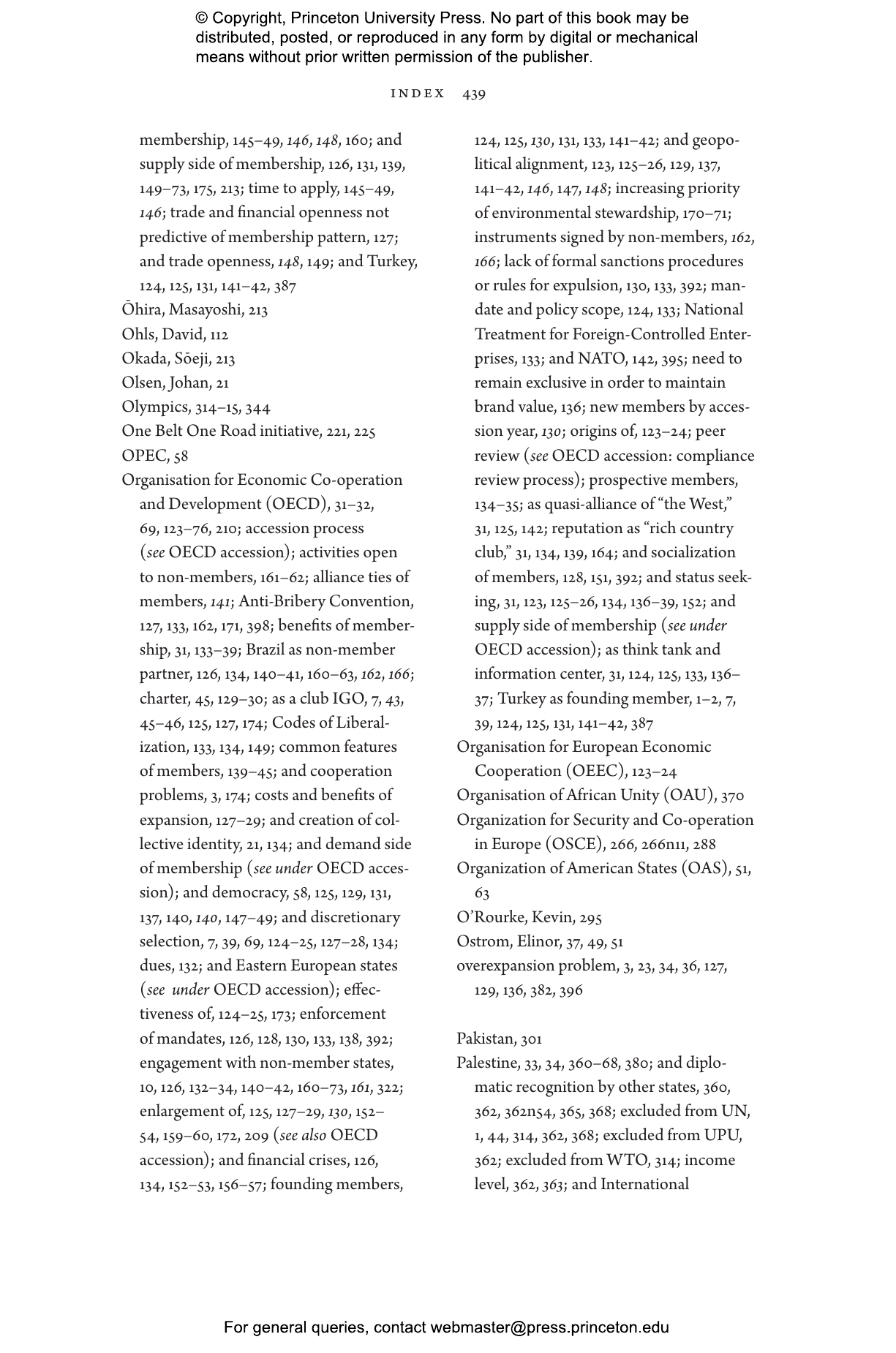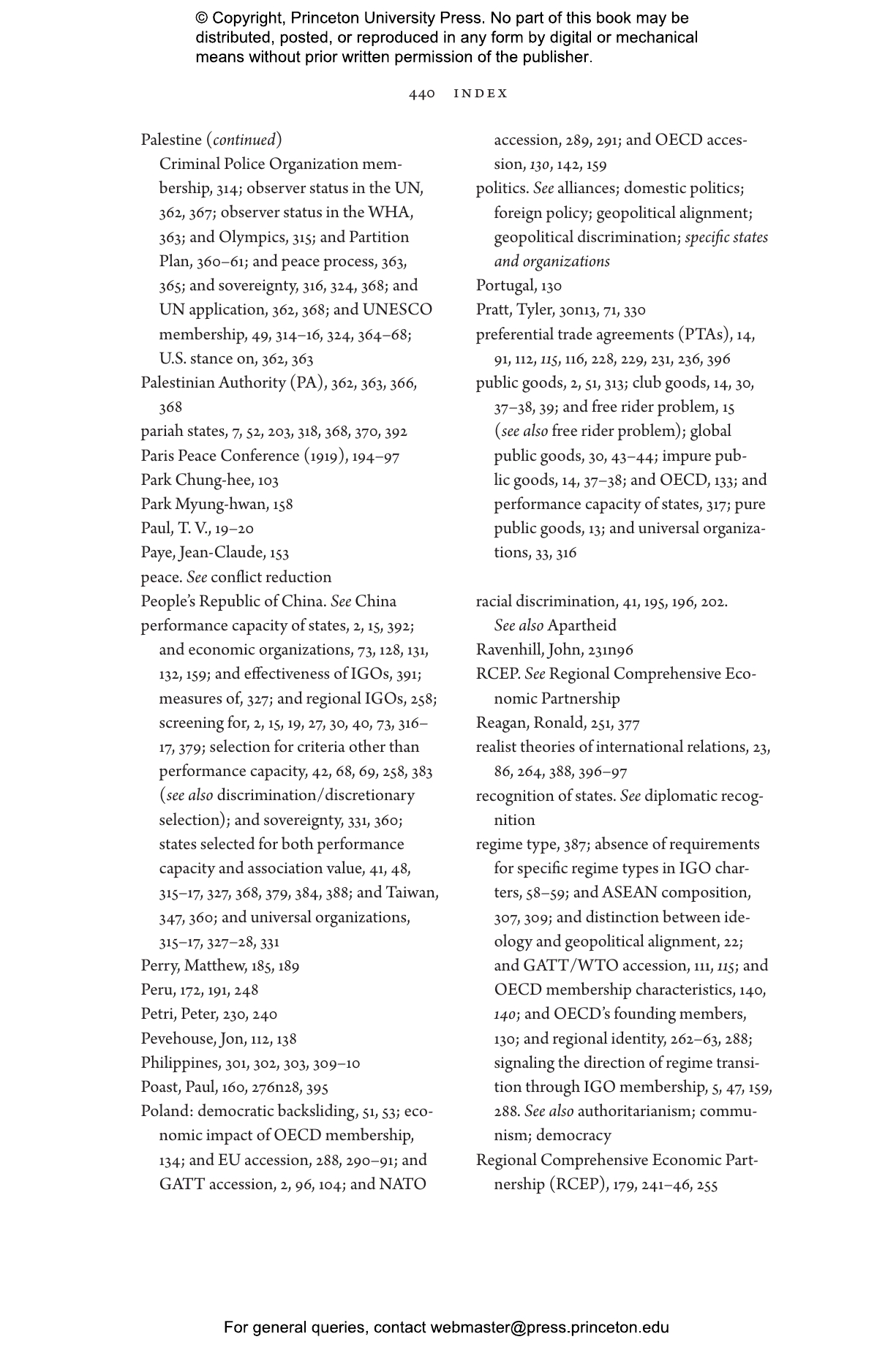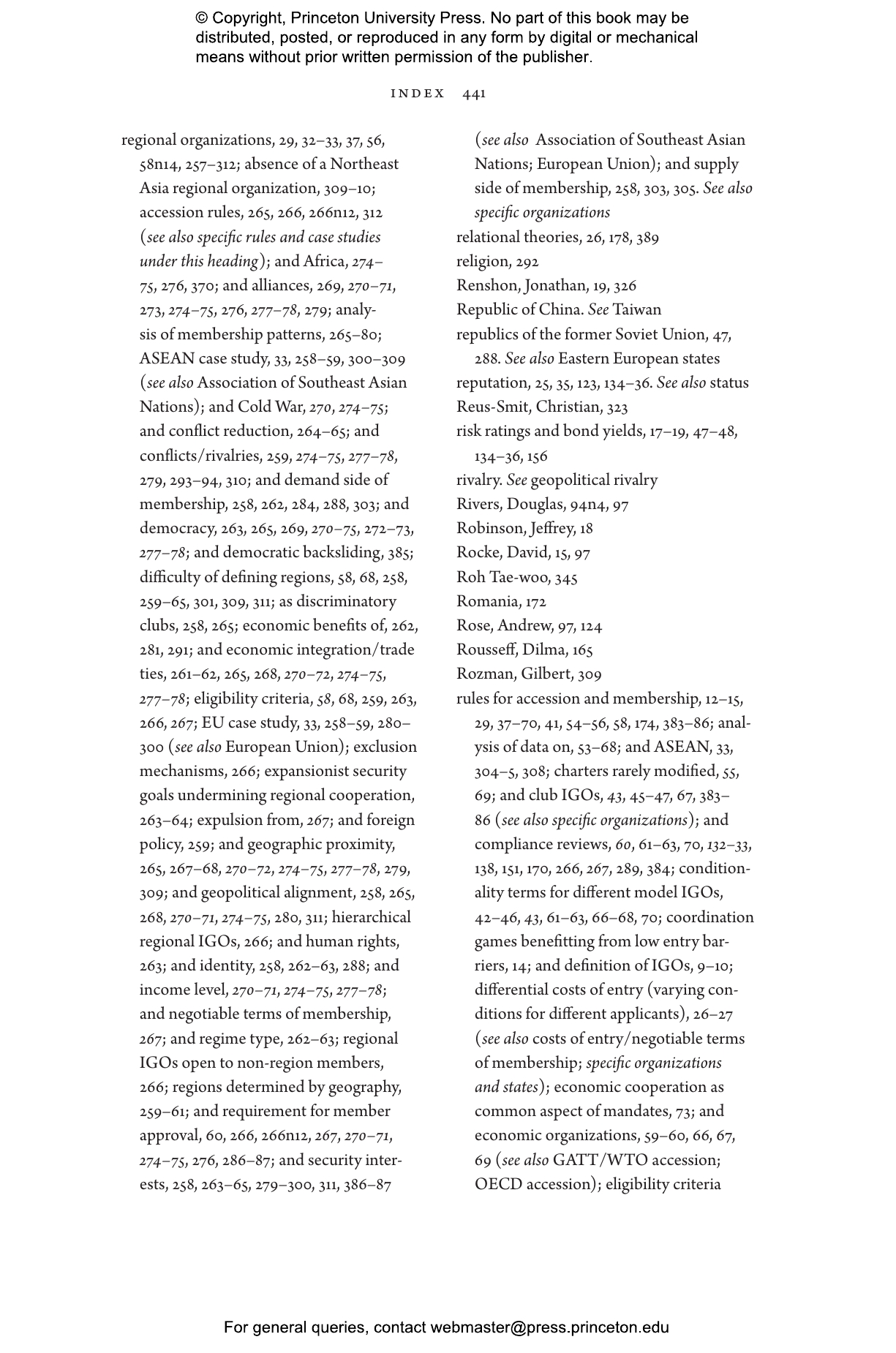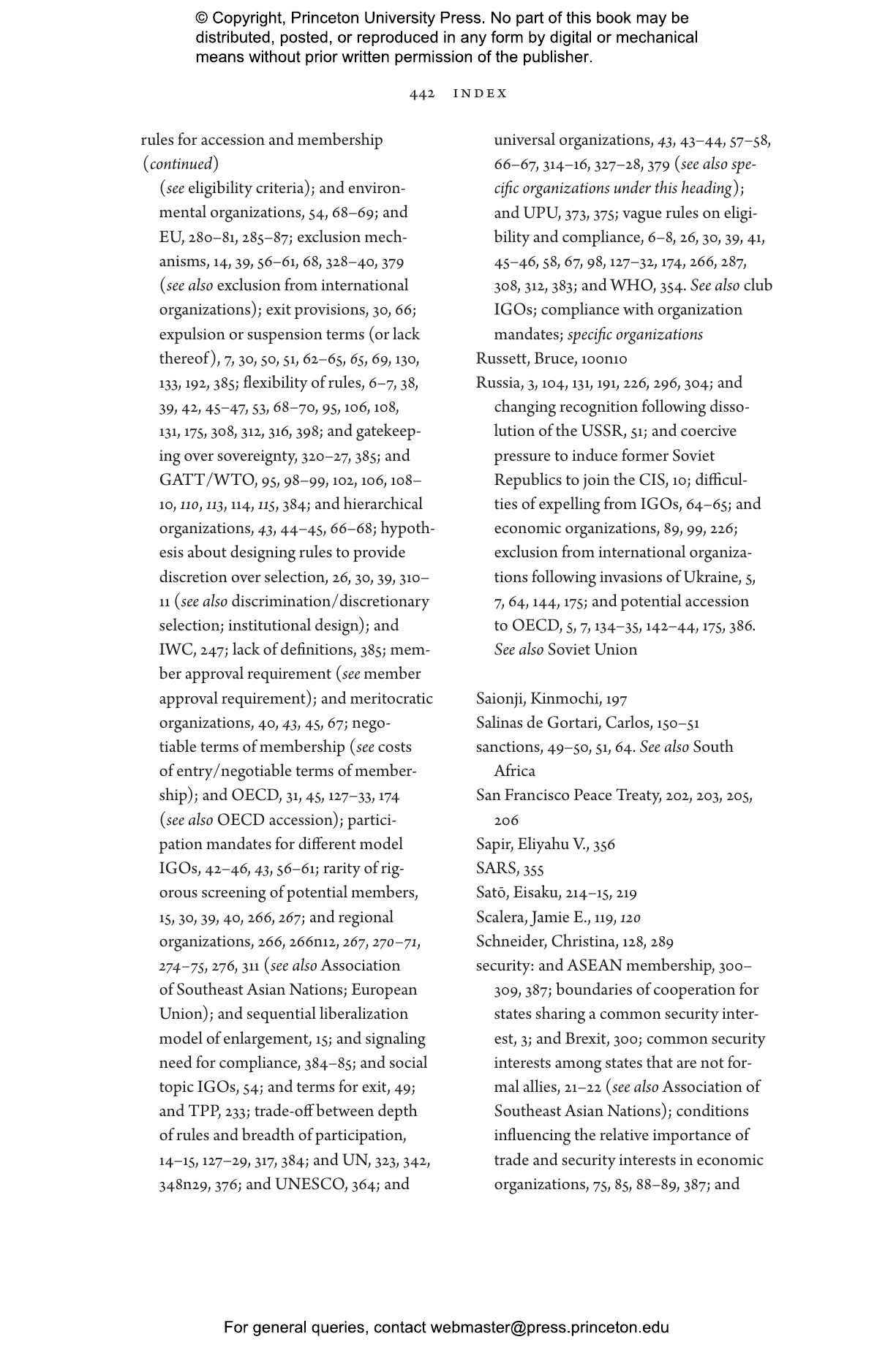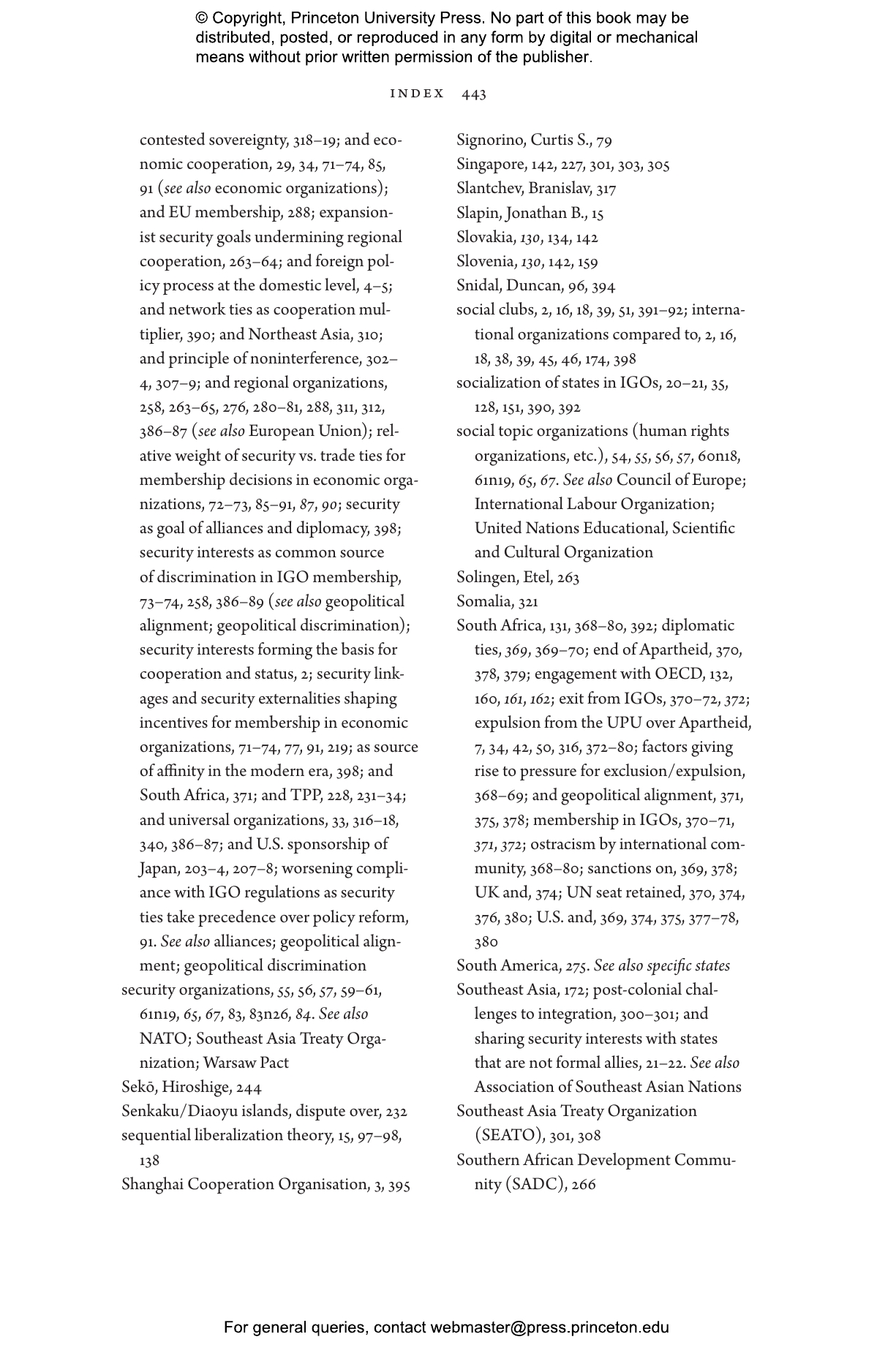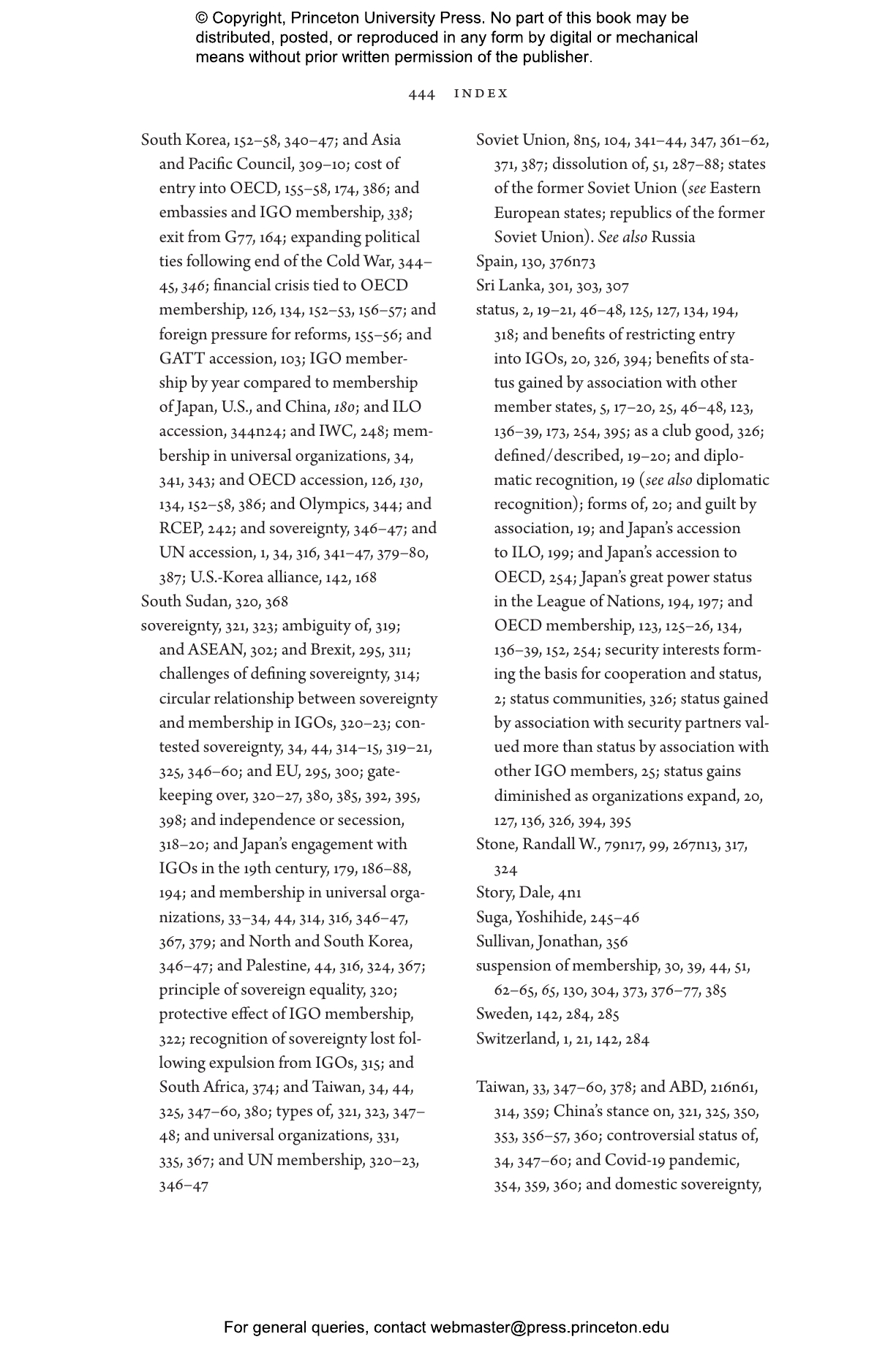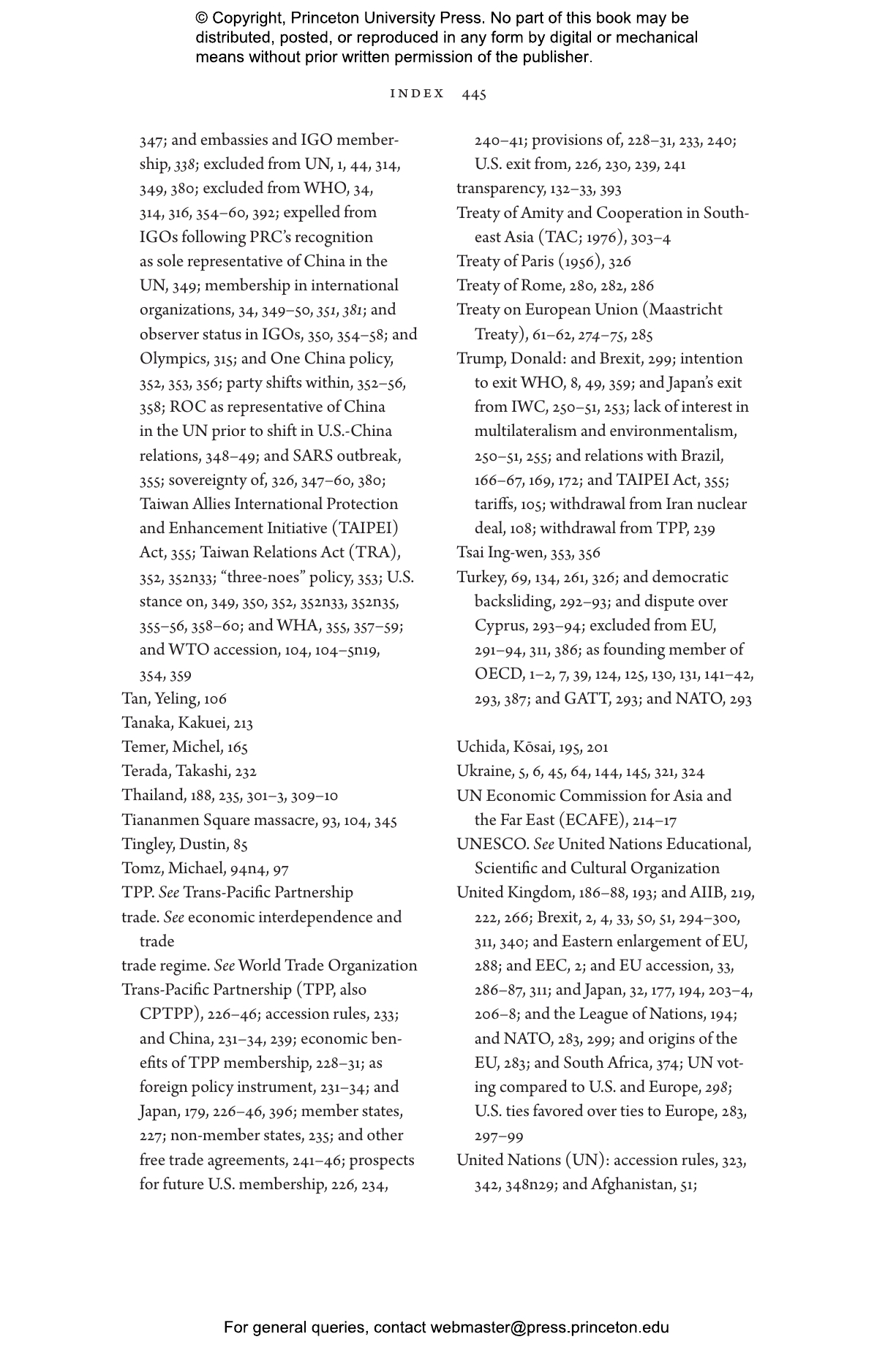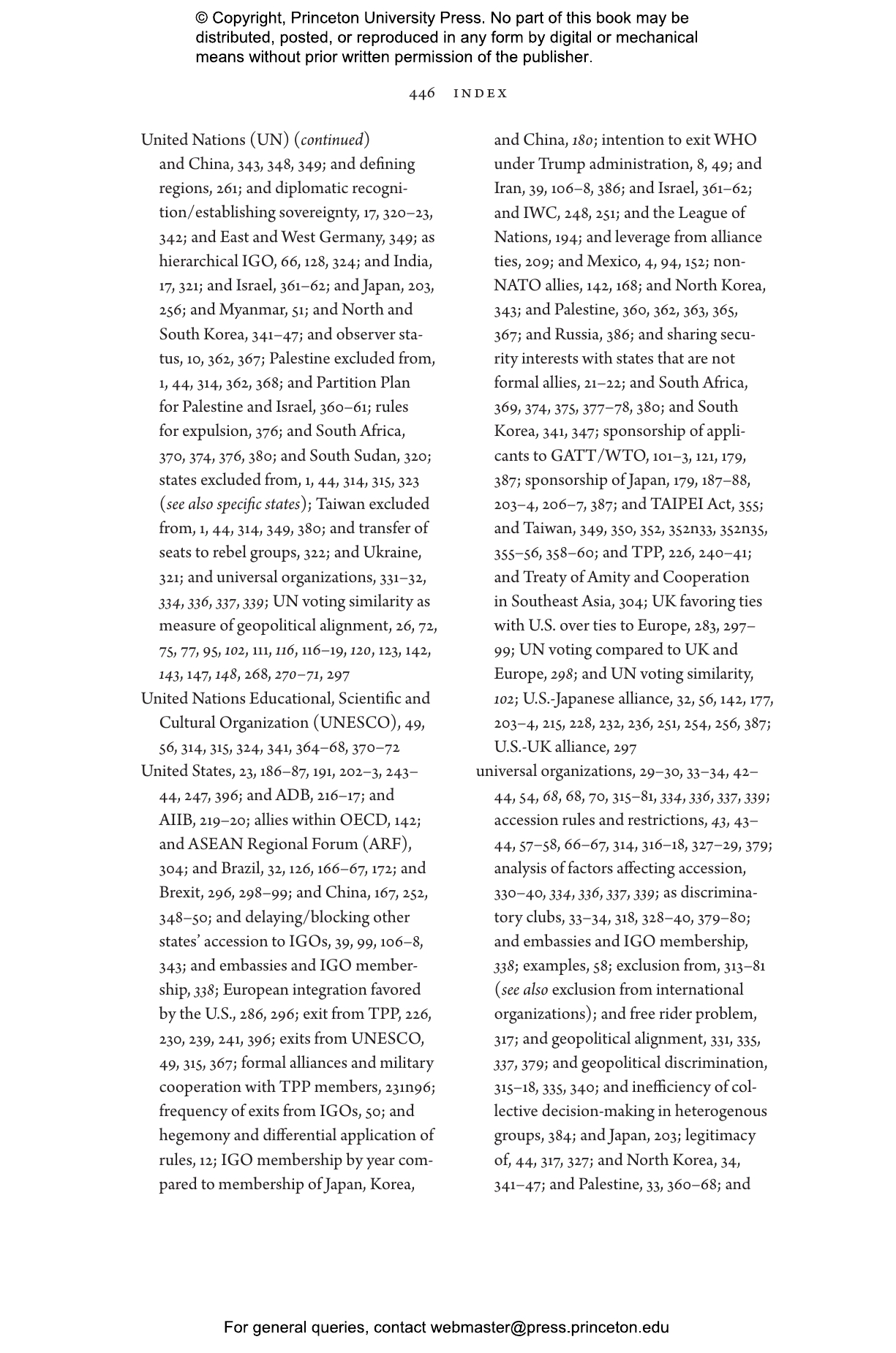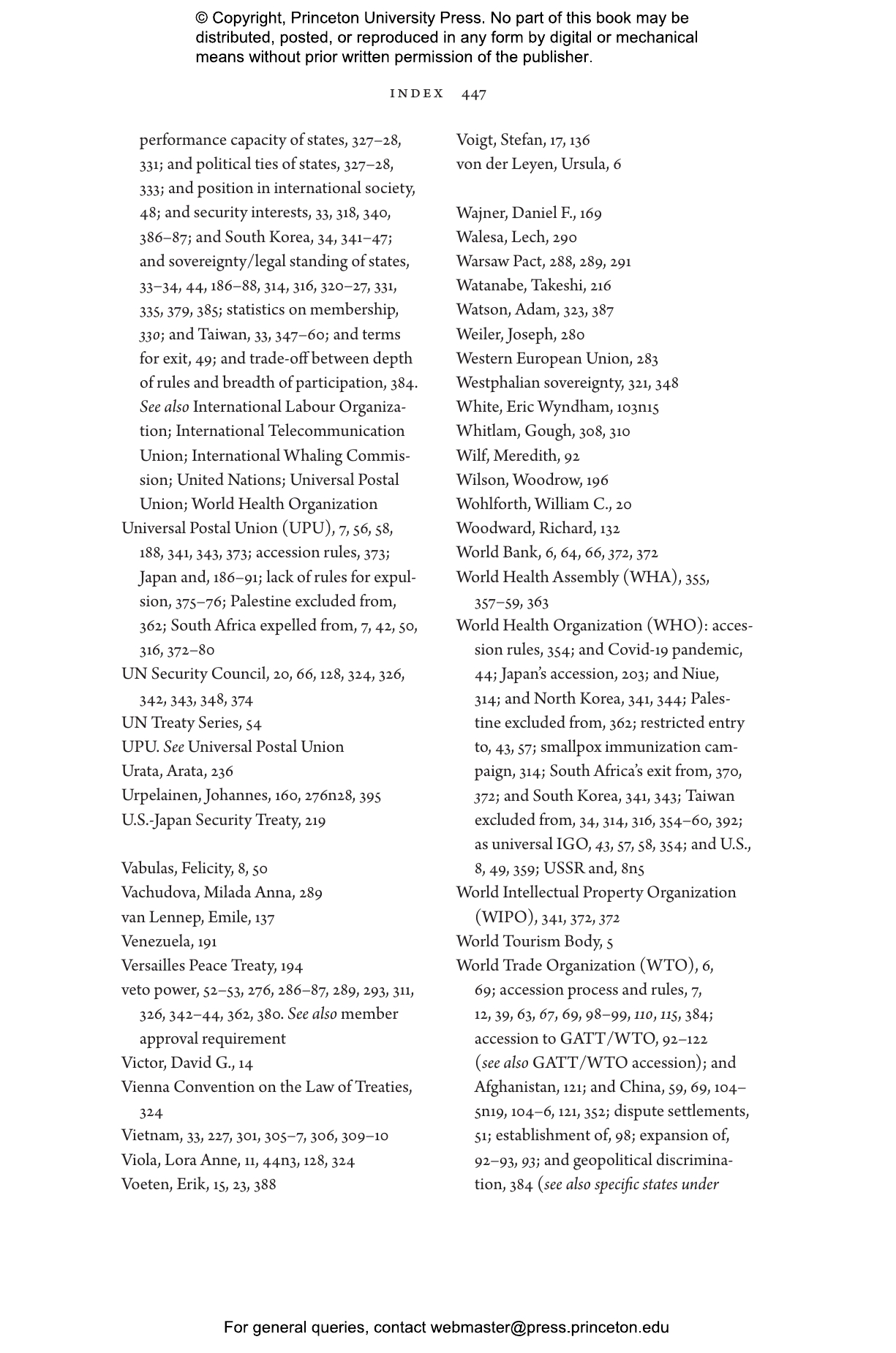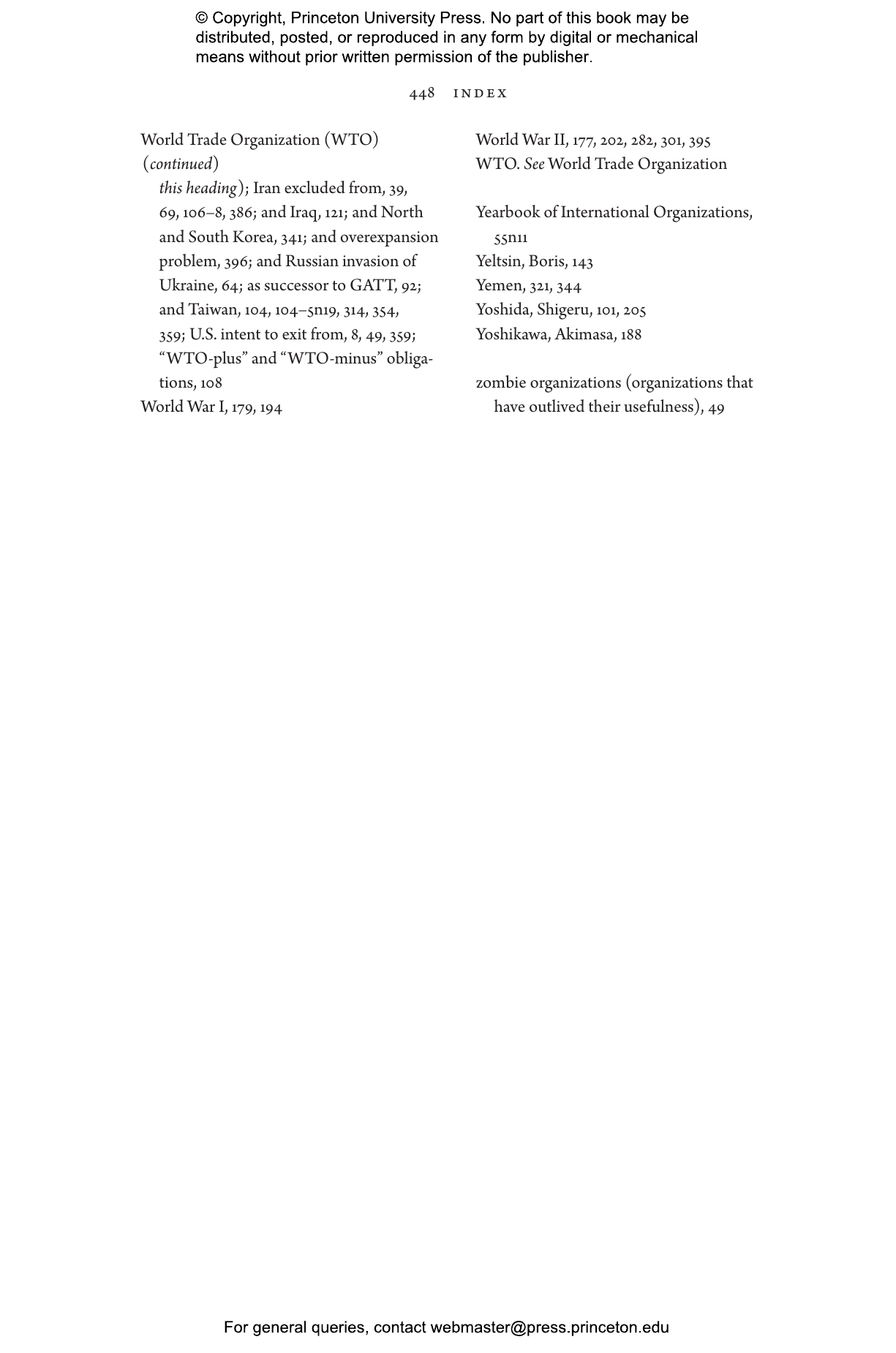Member selection is one of the defining elements of social organization, imposing categories on who we are and what we do. Discriminatory Clubs shows how international organizations are like social clubs, ones in which institutional rules and informal practices enable states to favor friends while excluding rivals.
Where race or socioeconomic status may be a basis for discrimination by social clubs, geopolitical alignment determines who gets into the room to make the rules of global governance. Christina Davis brings together a wealth of data on membership provisions for more than three hundred organizations to reveal the prevalence of club-style selection on the world stage. States join organizations to deepen their association with a particular group of states—most often their allies—and for the gains from policy coordination. Even organizations that claim to be universal, to target narrow issues, or to cover geographic regions use club-style admission criteria. Davis demonstrates that when it comes to the most important decision of cooperation—who belongs to the club and who doesn’t—geopolitical alignment can matter more than the merits or policies of potential members.
With illuminating case studies ranging from nineteenth-century Japan to contemporary Palestine and Taiwan, Discriminatory Clubs sheds light on how, for global and regional organizations such as the WTO and the EU, alliance ties and shared foreign-policy positions form the basis of cooperation.
Awards and Recognition
- A Choice Outstanding Academic Title of the Year
Christina L. Davis is the Edwin O. Reischauer Professor of Japanese Politics in the Department of Government at Harvard University. She is the author of Why Adjudicate? and Food Fights over Free Trade (both Princeton).
“Discriminatory Clubs uses an innovative multimethod design, with new data and creative approaches. The breadth of coverage is impressive, and the theory is well done.”—Allison Carnegie, coauthor of Secrets in Global Governance
“This is a magnificent book and a powerful call to interrogate not why states form and join international organizations, but rather how states define how they want to cooperate and with whom. Davis argues that those subjective definitions can shift on whim, which invites a reconsideration of the terms on which nations cooperate.”—Julia Gray, author of The Company States Keep
“Why do many international organizations keep particular states out? Christina Davis takes on functionalist explanations of international cooperation to argue that states want prospective members to be on the same geopolitical wavelength in order to safeguard their security in a volatile world. Discriminatory Clubs is destined to be a classic.”—Liesbet Hooghe, University of North Carolina, Chapel Hill, and European University Institute
“Discriminatory Clubs shows how membership criteria for international organizations generate ‘discriminatory clubs’ of friendly states. Geopolitical interests, Christina Davis argues, are as important as the capacities of membership candidates to strengthen organizational performance.”—Robert O. Keohane, professor emeritus, Princeton University
“In this magisterial work, Davis presents a sweeping reinterpretation of multilateralism. She portrays international organizations as social institutions that value association. As such, they necessarily discriminate in the processes of state entry and exit. Membership politics reflects geopolitics, even within organizations that ostensibly have solely economic goals.”—Lisa Martin, University of Wisconsin–Madison
“In this pathbreaking book, Christina Davis delves beneath the tranquil technocratic surface of international organizations and uncovers powerful states advancing their geopolitical aims by including their allies and excluding their adversaries.”—Andrew Moravcsik, Princeton University
“International organizations are a pillar of the so-called post–World War II liberal international order. While it is common to see them as transforming international politics by bringing nations together, the picture is more complicated. Through theoretical rigor and the marshalling of extensive empirical evidence, Davis shows how membership in these clubs is another tool by which states, both great powers and small states alike, perpetuate the continuation of power politics.”—Paul Poast, University of Chicago
